
100+ Space Research Topics [Updated]
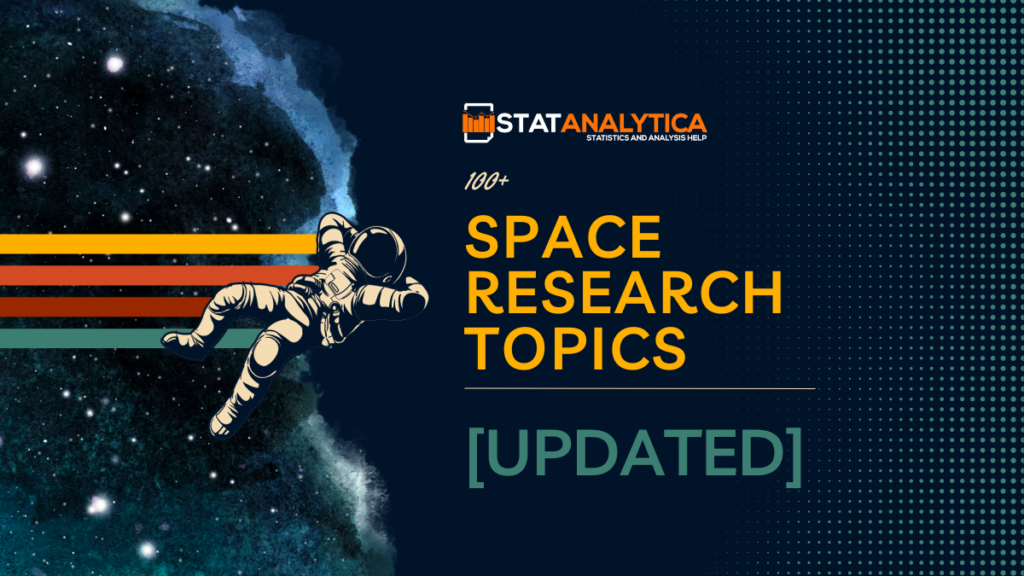
Space has always attracted humanity’s imagination. The vastness of the cosmos, with its twinkling stars, mysterious planets, and enigmatic black holes, beckons us to explore its depths. But why do we study space? What are the research topics that drive scientists to reach for the stars? In this blog, we’ll delve into the fascinating world of space research topics, exploring key topics that continue to inspire and challenge researchers around the globe.
Why Do We Study Space?
Table of Contents
Here are some key points explaining why we study space:
- Understanding our Origins: Space research helps us uncover the origins of the universe, including how galaxies, stars, and planets formed.
- Advancing Scientific Knowledge: Studying space leads to breakthroughs in physics, astronomy, and other scientific fields, expanding our understanding of the cosmos.
- Technological Innovation: Space exploration drives the development of new technologies, such as satellite communication and medical imaging, benefiting society as a whole.
- Exploration and Discovery: Humans are inherently curious, and space offers a vast frontier for exploration, fueling our desire to discover new worlds and phenomena.
- Earth Observation: Space-based observations provide valuable data on Earth’s climate, weather patterns, and environmental changes, aiding in disaster management and conservation efforts.
- Search for Life: Investigating other planets and celestial bodies helps us understand the conditions necessary for life, potentially leading to the discovery of extraterrestrial life forms.
- Inspiration and Education: Space exploration inspires future generations of scientists, engineers, and explorers, fostering innovation and curiosity about the universe.
100+ Space Research Topics: Category Wise
Astronomy and astrophysics.
- Exoplanet detection methods and recent discoveries
- The life cycle of stars: from birth to death
- Supermassive black holes and their role in galaxy formation
- Gravitational waves: detection and implications
- Dark matter and dark energy: understanding the mysteries of the universe
- Supernovae explosions: studying the aftermath of stellar deaths
- Galactic dynamics: exploring the structure and evolution of galaxies
- Cosmic microwave background radiation: insights into the early universe
- Gamma-ray bursts: uncovering the most energetic explosions in the cosmos
- The search for extrasolar planets with potential habitable conditions
Planetary Science
- Martian geology and the search for signs of past life
- Jupiter’s Great Red Spot: dynamics and longevity
- Saturn’s rings: composition, structure, and origin
- Lunar exploration: past missions and future prospects
- Venusian atmosphere: understanding the greenhouse effect and extreme conditions
- Io, Europa, Ganymede, and Callisto: Jupiter’s diverse moons
- Titan: Saturn’s moon with an Earth-like atmosphere and hydrocarbon lakes
- The Kuiper Belt and Oort Cloud: reservoirs of comets and icy bodies
- Dwarf planets: Pluto, Eris, Haumea, Makemake, and Ceres
- Planetary volcanism: processes and consequences on various celestial bodies
Space Technology and Engineering
- Satellite constellations for global internet coverage
- CubeSats: miniaturized satellites for scientific research and technology demonstration
- Space debris mitigation strategies and technologies
- Ion propulsion systems: efficient propulsion for deep space missions
- Space telescopes: next-generation observatories for astronomy and astrophysics
- Space-based solar power: harvesting solar energy in orbit
- Asteroid mining: extracting resources from near-Earth objects
- In-situ resource utilization on other planets and moons
- Additive manufacturing (3D printing) in space exploration
- Autonomous spacecraft navigation and control for long-duration missions
Astrobiology and the Search for Life
- Extremophiles: organisms thriving in extreme environments on Earth and their implications for extraterrestrial life
- Biosignatures: markers of past or present life on other planets
- Methanogenesis on Mars: potential evidence for subsurface microbial life
- Europa’s subsurface ocean: exploring the possibility of life beneath the ice
- Enceladus: hydrothermal vents and the search for life in its subsurface ocean
- The habitability of exoplanets: assessing conditions for life beyond the solar system
- Panspermia: the transfer of life between celestial bodies
- Astrobiology field research in extreme environments on Earth
- SETI: the search for extraterrestrial intelligence and communication
- The implications of discovering microbial life on Mars or other celestial bodies
Space Policy and Ethics
- International collaboration in space exploration and research
- The Outer Space Treaty: principles governing the use of outer space
- Space tourism regulations and safety considerations
- Space law and jurisdiction: legal frameworks for activities in space
- Military applications of space technology and potential arms race in space
- Space resource utilization and ownership rights
- Space environmentalism: advocating for the protection of celestial bodies and their environments
- Space colonization ethics and implications for human societies
- Space governance beyond national boundaries
- Cultural heritage preservation on the Moon and other celestial bodies
Challenges and Future Directions
- Funding challenges and opportunities in space research and exploration
- Space radiation hazards and mitigation strategies for astronauts
- Interplanetary communication and navigation for deep space missions
- Long-duration spaceflight: physiological and psychological effects on astronauts
- Terraforming Mars: engineering a habitable environment on the Red Planet
- Space elevator concept: a revolutionary approach to space access
- Next-generation space launch vehicles and propulsion technologies
- Nuclear propulsion for crewed missions to Mars and beyond
- Space settlement design and infrastructure requirements
- Advancing artificial intelligence and robotics for autonomous space exploration
Space Weather and Space Environment
- Solar flares and coronal mass ejections: impacts on Earth’s magnetosphere and technology
- Space weather forecasting and its applications in satellite operations
- Magnetospheres of Earth and other planets: comparative studies and dynamics
- Solar wind interactions with planetary atmospheres and magnetospheres
- Aurora phenomena on Earth and other planets
- Radiation belts: understanding and mitigating hazards for spacecraft and astronauts
- Cosmic rays: sources, composition, and effects on space missions
- Space climate change: long-term variations in solar activity and their consequences
- Space weather effects on satellite communications, navigation, and power systems
- Space weather monitoring and prediction networks
Space Exploration and Missions
- Mars Sample Return mission: challenges and scientific objectives
- Artemis program: NASA’s plans for returning astronauts to the Moon
- Asteroid impact mitigation strategies and planetary defense initiatives
- The James Webb Space Telescope: capabilities and scientific goals
- Europa Clipper mission: exploring Jupiter’s icy moon for signs of habitability
- China’s Chang’e lunar exploration program: past achievements and future missions
- Commercial crew and cargo transportation to the International Space Station
- Voyager and Pioneer missions: the farthest human-made objects in space
- Space missions to study near-Earth objects and potential asteroid mining targets
- International Mars exploration collaborations and missions
Space Communication and Navigation
- Deep space communication networks and relay satellites
- Laser communication technology for high-speed data transmission in space
- Satellite-based navigation systems: GPS, Galileo, and GLONASS
- Interplanetary Internet: protocols and architectures for space communications
- Radio astronomy and interferometry: probing the universe with radio waves
- Quantum communication in space: secure and ultra-fast communication channels
- Delay-tolerant networking for deep space missions
- Autonomous navigation systems for spacecraft and rovers
- Optical communications for small satellites and CubeSats
- Space-to-ground communication systems for remote sensing and Earth observation satellites
Space Medicine and Human Spaceflight
- Microgravity effects on human physiology and health
- Countermeasures for mitigating bone and muscle loss in space
- Psychological challenges of long-duration space missions
- Space food technology: nutrition and sustainability in space
- Medical emergencies in space: protocols and procedures for astronaut health care
- Radiation shielding and protection for crewed missions beyond Earth orbit
- Sleep and circadian rhythms in space: optimizing astronaut performance
- Artificial gravity concepts for maintaining crew health on long-duration missions
- Telemedicine applications for space exploration missions
- Bioastronautics research: advancing human spaceflight capabilities and safety
Space Industry and Commercialization
- NewSpace companies: the rise of private space exploration ventures
- Satellite constellation deployments for global internet coverage
- Space tourism: opportunities, challenges, and market trends
- Commercial spaceports and launch facilities around the world
- Space manufacturing and in-space assembly techniques
Tips To Write Space Research Papers
Crafting space research papers can be a thrilling and fulfilling pursuit, yet it demands meticulous planning and implementation to guarantee that your efforts effectively convey your discoveries and make meaningful contributions to the discipline. Here are some tips to help you write space research papers:
- Choose a Narrow Topic: Space is a vast field with numerous sub-disciplines. Narrow down your topic to something specific and manageable, ensuring that it aligns with your interests and expertise.
- Conduct Thorough Research: Before you start writing, immerse yourself in the existing literature on your chosen topic. Familiarize yourself with key concepts, theories, and recent discoveries to provide context for your research.
- Develop a Clear Thesis Statement: Define the central argument or hypothesis of your paper in a concise and focused thesis statement. This statement should guide your writing and serve as the foundation for your research.
- Outline Your Paper: Create a detailed outline outlining the structure of your paper, including the introduction, literature review, results, and conclusion sections. This will help you organize your thoughts and ensure that your paper flows logically.
- Write a Compelling Introduction: Begin your paper with a captivating introduction that offers context about your subject, underscores its importance, and delineates the paper’s framework . Grab the reader’s interest and inspire them to delve further into your work.
- Provide a Comprehensive Literature Review: Synthesize the existing research on your topic in a literature review section. Examine pertinent research, theories, methodologies, and results, pinpointing any disparities or deficiencies in the existing literature that your study seeks to rectify.
- Detail Your Methodology: Describe the methods you used to conduct your research, including data collection, analysis, and interpretation techniques. Provide enough detail for readers to understand how your study was conducted and to evaluate its validity and reliability.
- Present Your Results Clearly: Present your research findings in a clear, concise manner, using tables, figures, and charts to illustrate key data points. Interpret your results objectively and discuss their implications in relation to your research question or hypothesis.
- Engage in Critical Analysis: Analyze your findings in the context of existing literature, discussing their significance, strengths, limitations, and potential implications for future research. Be critical and objective in your evaluation, acknowledging any potential biases or limitations in your study.
- Craft a Strong Conclusion: Summarize the main findings of your research and reiterate their significance in the conclusion section. Discuss any implications for theory, practice, or policy and suggest avenues for future research.
- Proofread and Revise: Before submitting your paper, carefully proofread it for spelling, grammar, and punctuation errors. Edit your writing to ensure clarity, coherence, and consistency, guaranteeing that your points are adequately backed and logically organized.
- Follow Formatting Guidelines: Follow the formatting instructions provided by the journal or conference to which you intend to submit your paper. Pay attention to details such as font size, margins, citation style, and reference formatting to ensure that your paper meets the publication requirements.
Space research offers a window into the vastness of the cosmos, revealing the beauty and complexity of the universe we inhabit. From the depths of space to the surfaces of distant planets, scientists are uncovering new wonders and answering age-old questions about our place in the universe. As we look to the stars, let us be inspired by the spirit of exploration and discovery that drives humanity ever onward, towards new horizons and unknown worlds. I hope you find the best space research topics from the above list.
Related Posts

Step by Step Guide on The Best Way to Finance Car

The Best Way on How to Get Fund For Business to Grow it Efficiently
- Write my thesis
- Thesis writers
- Buy thesis papers
- Bachelor thesis
- Master's thesis
- Thesis editing services
- Thesis proofreading services
- Buy a thesis online
- Write my dissertation
- Dissertation proposal help
- Pay for dissertation
- Custom dissertation
- Dissertation help online
- Buy dissertation online
- Cheap dissertation
- Dissertation editing services
- Write my research paper
- Buy research paper online
- Pay for research paper
- Research paper help
- Order research paper
- Custom research paper
- Cheap research paper
- Research papers for sale
- Thesis subjects
- How It Works
80 Space Research Paper Topics: Ideas for Astronomical Grades!
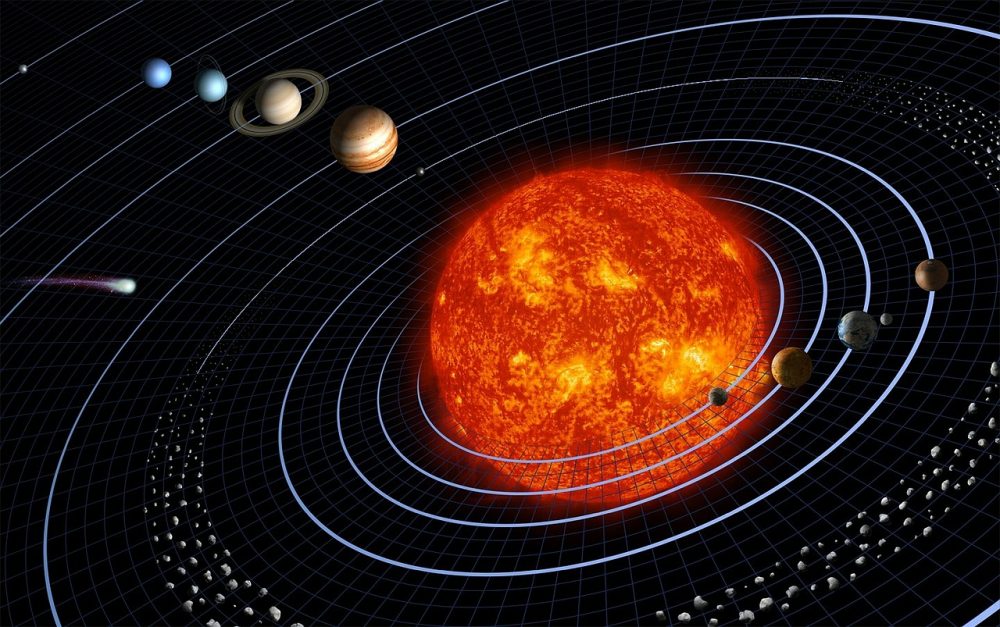
Why space research? The universe is replete with worlds apart from the planet earth. From our historical ancestors discovering fire to modern man exploring space, inquisitiveness has been vital to the innovation and exploration of our universe, and the survival and advancement of the human species. Space science has become increasingly popular over the years. With the study of outer space and space discoveries piling up by the day, it is essential to be able to write an essay on space. Writing on any topic about space will require that you are abreast of the latest space discoveries.
Writing a space essay would require that you have a working knowledge of other types of essays that we have described in our previous posts. For example, knowing how to write a descriptive essay will help in an article on the study of objects in space, while knowledge of how to write an argumentative essay will come in handy when writing an essay on controversial space topics. If you’re not sure you can do all this on your own, get college thesis writing help .
Coming Up With Great Space Topics
Space race topics, space research topics, space exploration topics, space topics for presentation, controversial space topics, earth and space science topics, astronomy research paper topics, astronomy essay topics, space arguable research topics, space science investigative essay topics.
Before writing an article on space study, you need to choose the right space topic. Choosing appropriate space topics is critical to the success of your space essay as the right topic will give you the luxury of a better flow of ideas. For this reason, we have crafted 80 topics about space that will make writing a space essay easy. You can never get bored while working on these interesting space topics because you will learn to explore and study space as you’ve never done before. These 80 cool space topics will come in handy in any space essay you plan to write.
Writing a space race essay is an excellent place to start if you want to explore the events that lead to the explosive growth of the space industry. The space race was a competition between the United States and the Soviet Union to attain the capability of space flight from the period of 1955 to 1975. If you’re interested in going back in time to tell these space stories uniquely, these space race topics will surely land you on the moon!
- The 1955 Space Race: Its Pros and Cons on the Rival Countries.
- The 1955 Space Race: Its Enduring Impact on Modern Space Technology and Travel.
- The 1955 Space Race: A Battle for Supremacy.
- How the Space Race Transformed America.
- The 1955 Space Race: The reason the Soviet Union lost to the USA.
Space research has become popular over the last decades. It is an extensive research field that seeks to study outer space scientifically. Research topics about space are relatively easy to find considering the broad research areas, which include: Earth observations, Geodesy, Atmospheric Sciences, Space physics, Planetology, Astronomy, Materials sciences, Life sciences, and Physics. Space research paper topics must stimulate and birth inquiry and answer compelling questions. Are you ready to get on the space shuttle? Here are some space research topics to help you!
- 2000 – 2010: A successful Decade in Astronomy?
- The Theory of Relativity in Space.
- UFOs and Extraterrestrials: Fact or Fiction?
- Space Colonization: Reasons, Goals, and Methods.
- Big Bang Theory: The Birth of the Universe?
Space exploration is the investigation of outer space with the use of space technology and astronomy. While the study of space is carried out mainly by astronomers with telescopes, its physical exploration is carried out by both robotic space probes and human spaceflight. Writing a space exploration essay opens your imagination to the wonders of outer space. You sure need to be ready for the unexpected! Here are some space exploration topics to whet your adventurous appetite!
- The Need for Continuous Space Exploration.
- Space Exploration: Differences between the then and now.
- Space Exploration: Its Importance to the Knowledge of the Earth and Universe.
- Space Exploration: Operations and Future Exploration Plans.
- The Importance of Unmanned Space Exploration.
Giving a presentation or seminar on space could be quite dicey. It requires that you can make complex phenomena appeal to the mind of your listeners. To be able to do this, you need to have a considerable amount of knowledge in any of the space science topics that you choose. A tip will be to choose topics that your audience will easily relate to, prepare adequately, and remember that you’re communicating with earthlings. Here are some space topics for a presentation that will earn you the respect of the extraterrestrials!
- The Earth and Universe.
- Getting the Big Picture from the Study of Dwarf Galaxies.
- History of Astronomy: A scientific Overview.
- What Exists in Space beyond our Solar Neighborhood.
- Future Space Missions: A look into what they should be.
Something as big as space study does not come without its controversies. Space exploration and travel are not without their risks and benefits. Many believe that robots, instead of humans, should man shuttles for space travel because of the risk space travel poses to humans. Many people also see space study as a sheer waste of time and resources and think it better to channel these vast amounts of money to more critical areas like health and education. All these different views and more, are what make space study a controversial topic. Here are some controversial space topics that will give you a hang of what to discuss in a space-related debate. Some of these topics could also be helpful in a space travel essay.
- Space Travel: At the Expense of our Health, Earth, and Future?
- Space Travel: A thing for Robots or Humans?
- Space Research: A Pointless Adventure and Waste of Resources?
- Earth and the Search for Other Habitable Planets.
- Science Versus Religion: The Big Bang?
Earth and Space Science or ESS, for short, connects systems by exploring the interrelationships between the land, atmosphere, ocean, and life on Earth. These include the water cycle, carbon cycle, rock cycle, and other materials that continually influence, shape, and sustain the earth. Here are some new earth and space science topics just for you!
- The Interactions between Weather and Climate.
- The Process of Rock Formation and Erosion.
- Plate Tectonics: An In-depth Exploration.
- Natural Catastrophes: Its consequence on the Ecosystem.
- The Moon and Sun: Effects on Ocean Tides.
There are two fields of study in carrying out astronomical research – the observational and theoretical fields of astronomy. Observation primarily deals with the study and monitoring of actual celestial objects in space like stars, planets, moons, and asteroids.
Theoretical dwells more on creating and studying models of astronomy that cannot be observed and haven’t been properly seen. Some astronomy research paper topics include;
- What happens during a solar eclipse?
- What are the major factors responsible for the solar eclipse?
- What should you expect during a lunar eclipse
- What lies beyond our visible universe
- Light and its dimension in space
- The lunar cycle – how does it function?
- Understanding solar system, sun, and the planets
- What is astrophysics?
- What are the different grand unification theories?
- The latitude and longitude of the earth.
- Fast mode, slow mode, and nonlinear effects
Celestial bodies like the sun, moon, other planets, and relatively closer objects in space are examined and comprehensively written upon under astronomy. Examples of astronomy essay topics include;
- How our planet came to exist
- How solar flares occur
- Our solar system, in broad view
- The effect of the moon on our oceans
- How stars are born
- What are the different types of stars in existence?
- Understanding molecular cloud
- How does the universe accelerate?
- Understanding cosmic acceleration and galaxy cluster growth
- Hubble constant and dark energy theories
- Formation, evolution, and destruction of clouds in galaxies
- What is the meridian and transit circle?
The mystery of what occurs inside a black hole is still up for debate, and so are other astronomical events. These form the bulk of space arguable research topics, which discuss things yet to be fully understood. Some space arguable research topics include;
- What is truly beyond the Milky Way?
- What is antimatter?
- Why does space keep expanding?
- How long does it take to travel the space?
- The physics behind a black hole.
- Is earth the most prominent of all the planets?
- How do people who live on other planets survive?
- Is Pluto an official planet or not?
- Should the journey to Mars be opened to everyone?
- What do astronauts eat while in space?
- Is Pluto a dwarf planet?
- A detailed analysis of the 2012 transit of Venus
- What are the best defenses against killer asteroids?
- Interplanetary matter and how to relate it to space activities.
Space is so vast and mysterious that there’s a lot to uncover with events to monitor and investigate. Creating agencies like NASA and the first mission to the moon was born out of curiosity about our place in this vast universe. Some space science investigative essay topics you could present include;
- How does the sun affect our water bodies?
- Where do asteroids come from?
- Molecular Cloud: Molecules, Properties, and Distribution
- How do solar systems with two stars operate?
- Is there an earth-like planet in the nearest solar system?
- Would we ever discover aliens?
- Conducting exoplanet research
- What is interstellar extinction?
- What are the essentials needed for space travel?
- Beyond this realm – understanding extraterrestrial life.
- What is a deep impact mission?
- Understanding the structure of the solar chromosphere.
- An analysis of the Wilson-Bappu effect
- What is a color index?
So here we are! 80 awesome space topics absolutely for free! Hopefully, you’ve got the perfect topic for your assignment or project. Keep shining like the star that you are! If you need more ideas, please check the following graduate project ideas .
Leave a Reply Cancel reply
Frontiers | Science News
- Science News
Research Topics
Reach for the stars: research topics on space exploration.
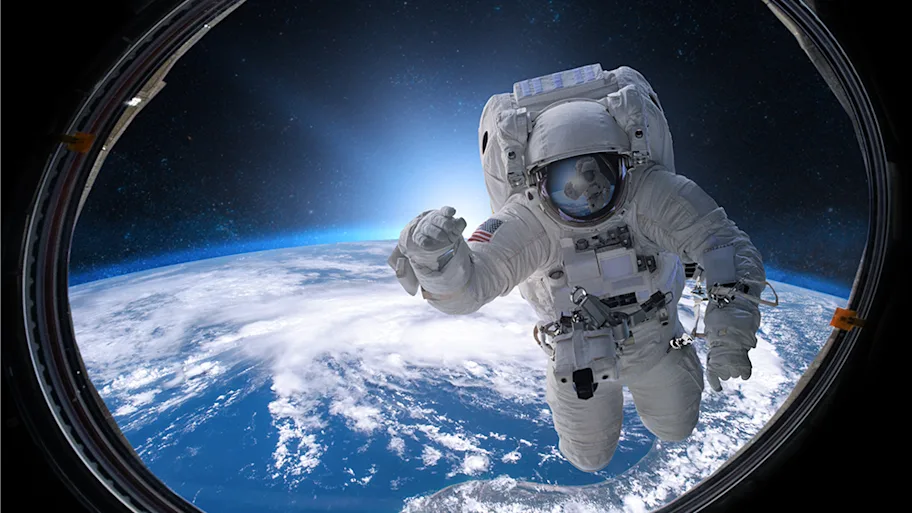
With recent advances in commercial space exploration, we have curated a list of our best Research Topics on outer space. Explore collections edited by experts from NASA, The Goddard Space Flight Center, Space Science Institute, German Aerospace Center, Canadian Space Agency, National Space Science Center, European Space Agency, International Space University, and many more.
Research Topics:
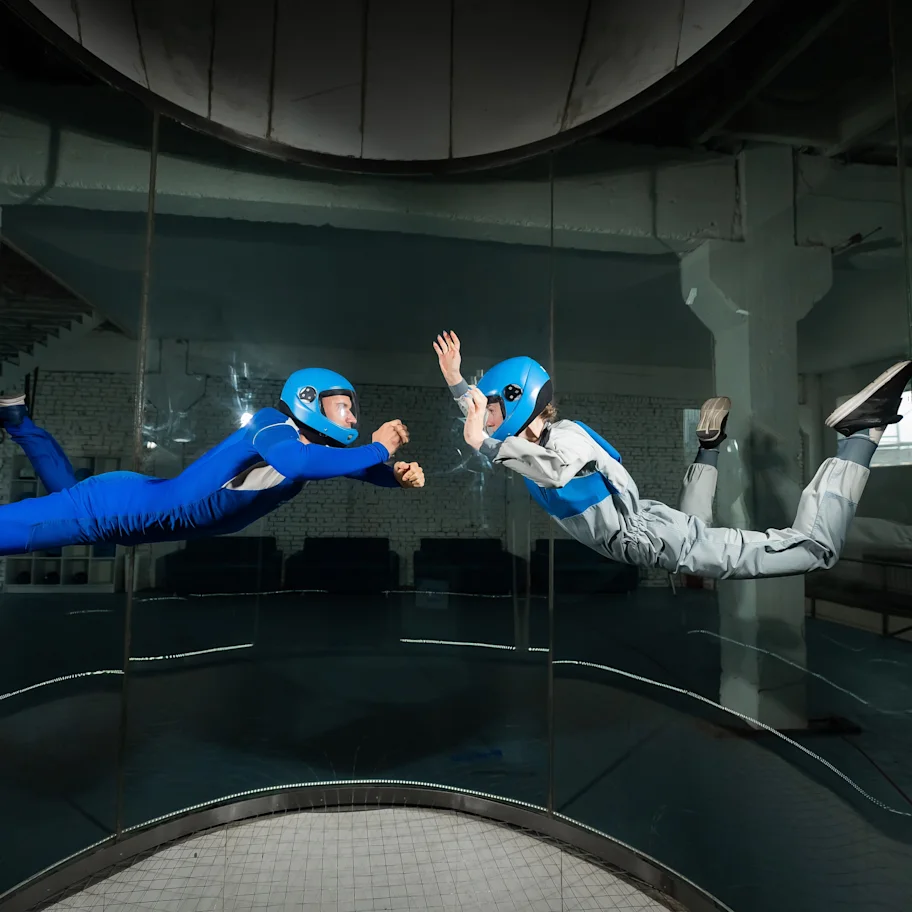
Optimization of Exercise Countermeasures for Human Space Flight – Lessons from Terrestrial Physiology and Operational Implementation
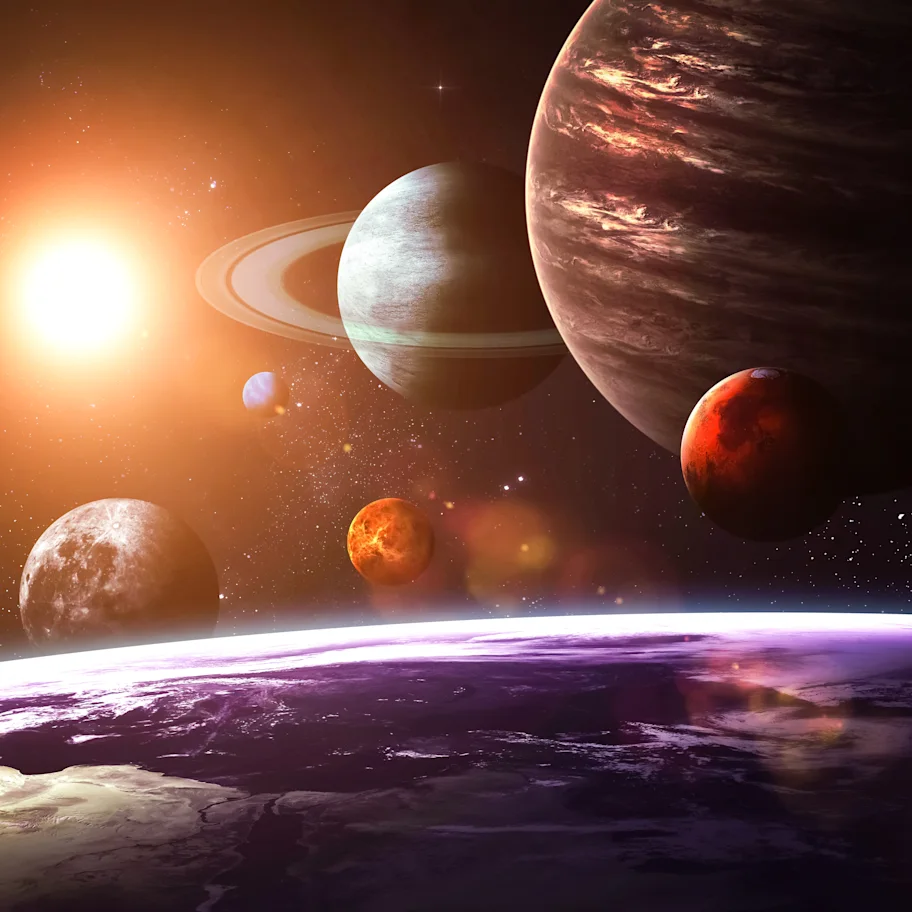
Biology in Space: Challenges and Opportunities
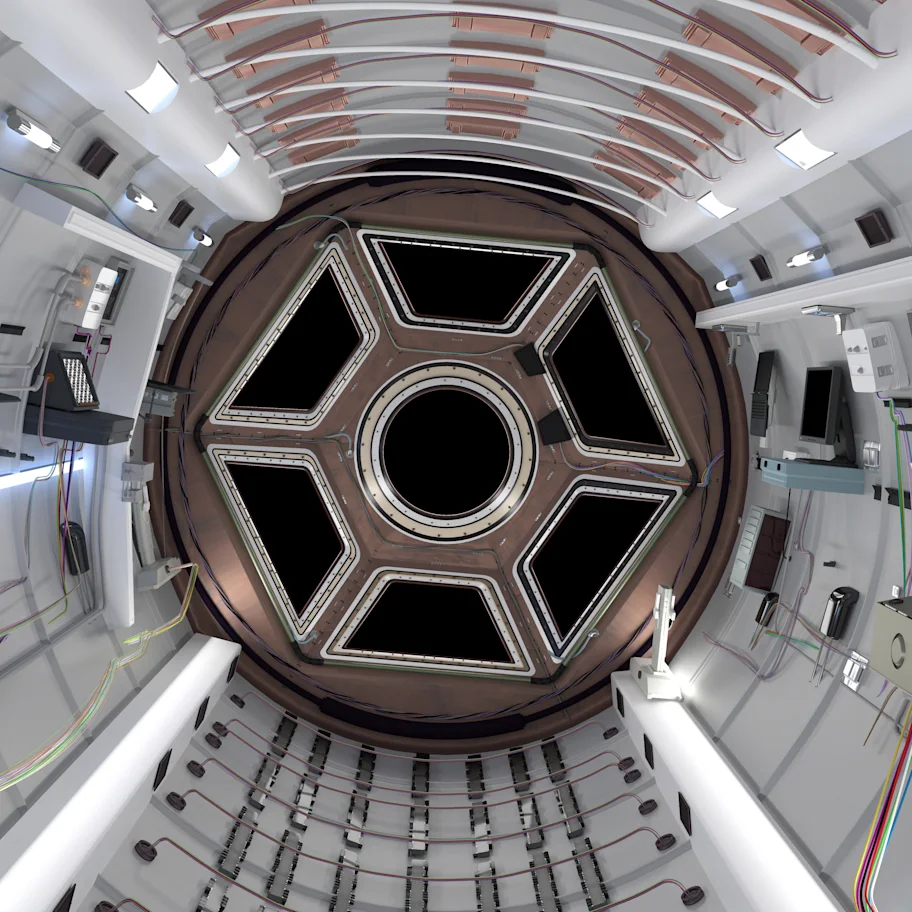
Microbiology of Extreme and Human-Made Confined Environments (Spacecraft, Space Stations, Cleanrooms, and Analogous Sites)
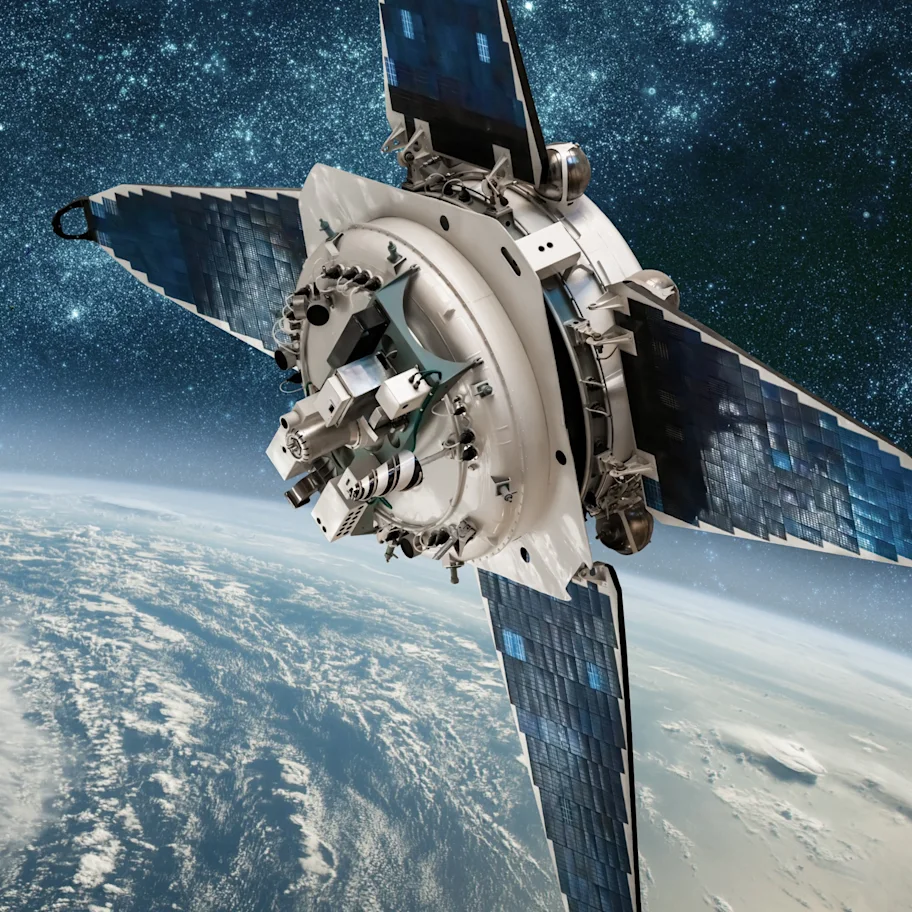
Geospace Observation of Natural Hazards
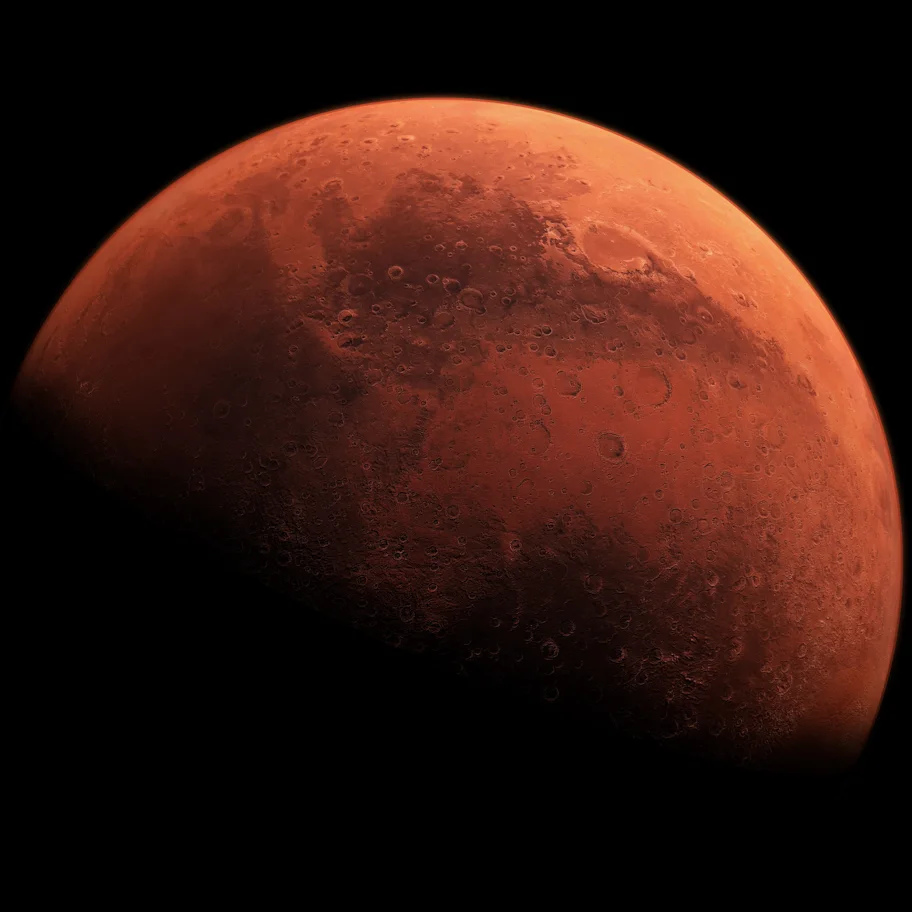
Astrobiology of Mars, Europa, Titan and Enceladus - Most Likely Places for Alien Life
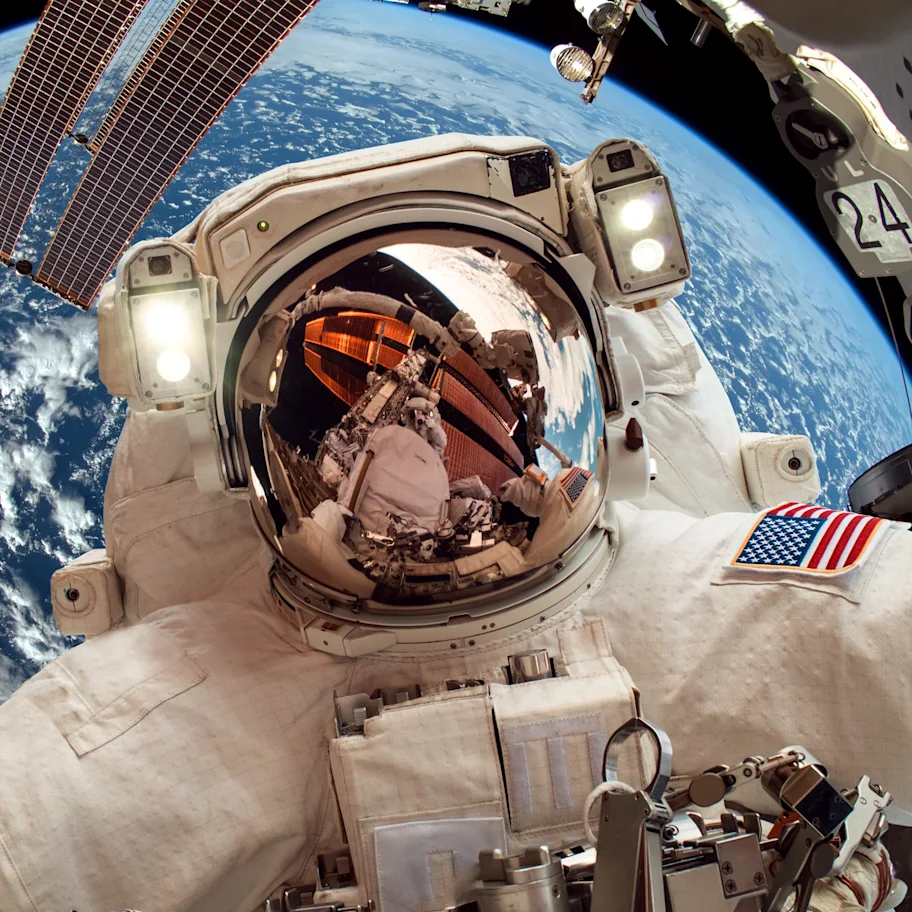
Imagining the Future of Astronomy and Space Science

Brains in Space: Effects of Spaceflight on the Human Brain and Behavior
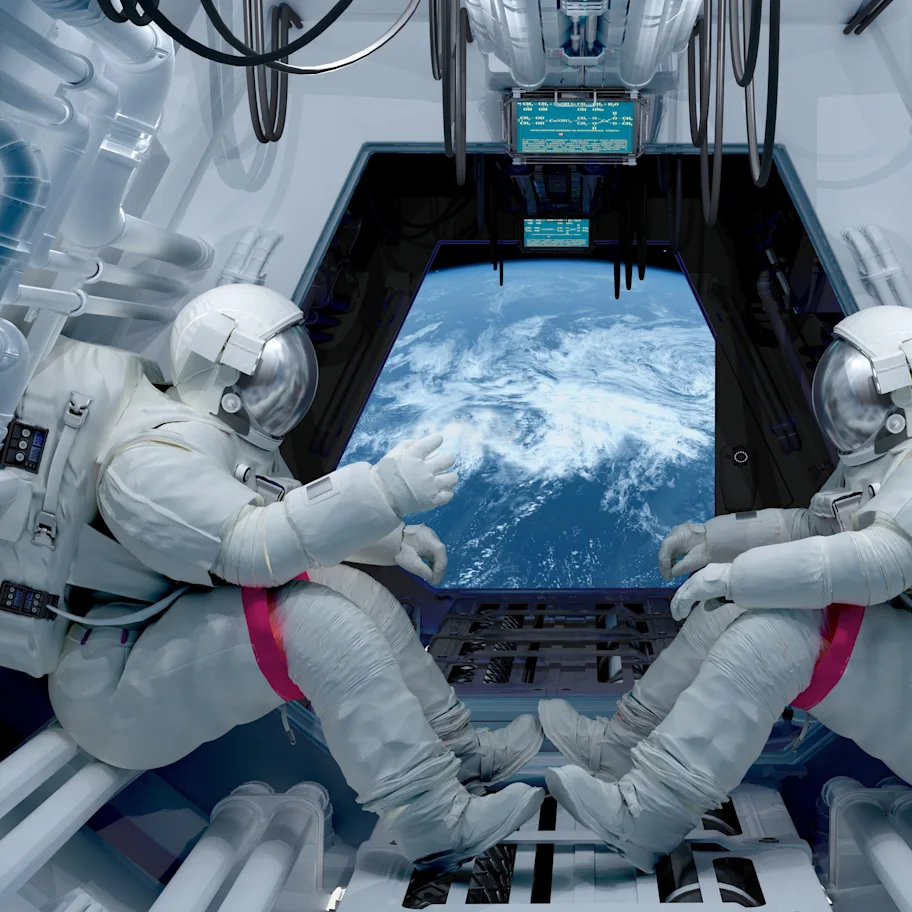
Creative Performance in Extreme Human Environments: Astronauts and Space
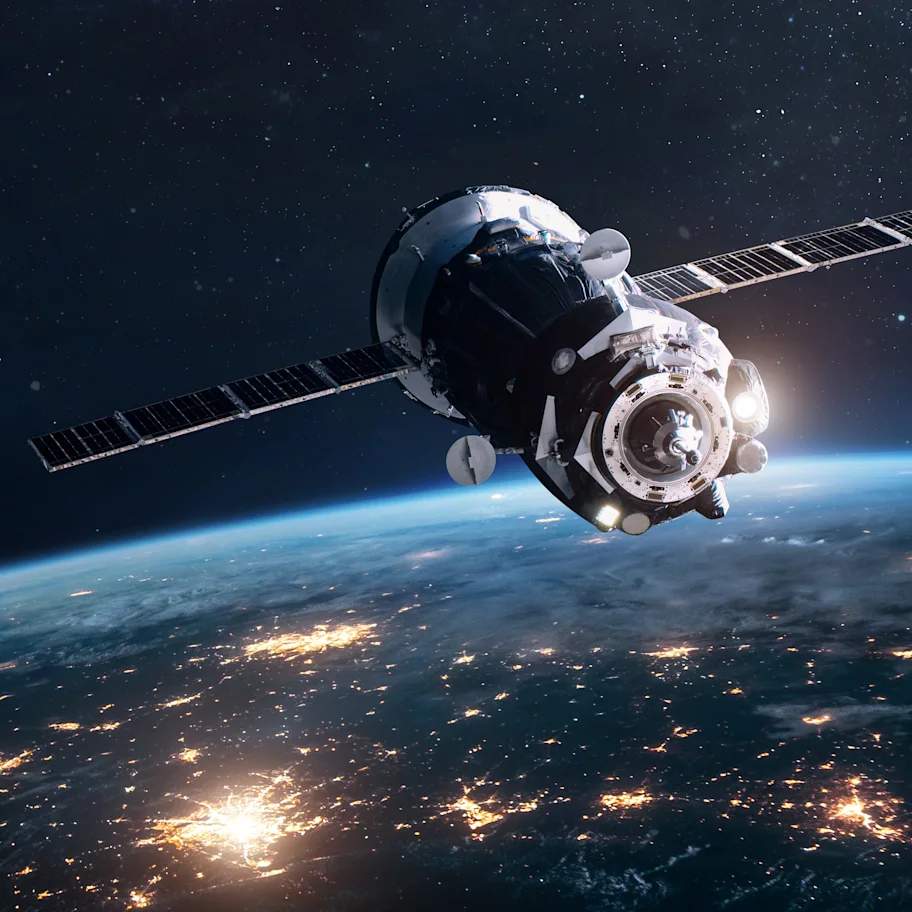
Space Traffic Management: a new era in Earth orbit

Wound Management and Healing in Space
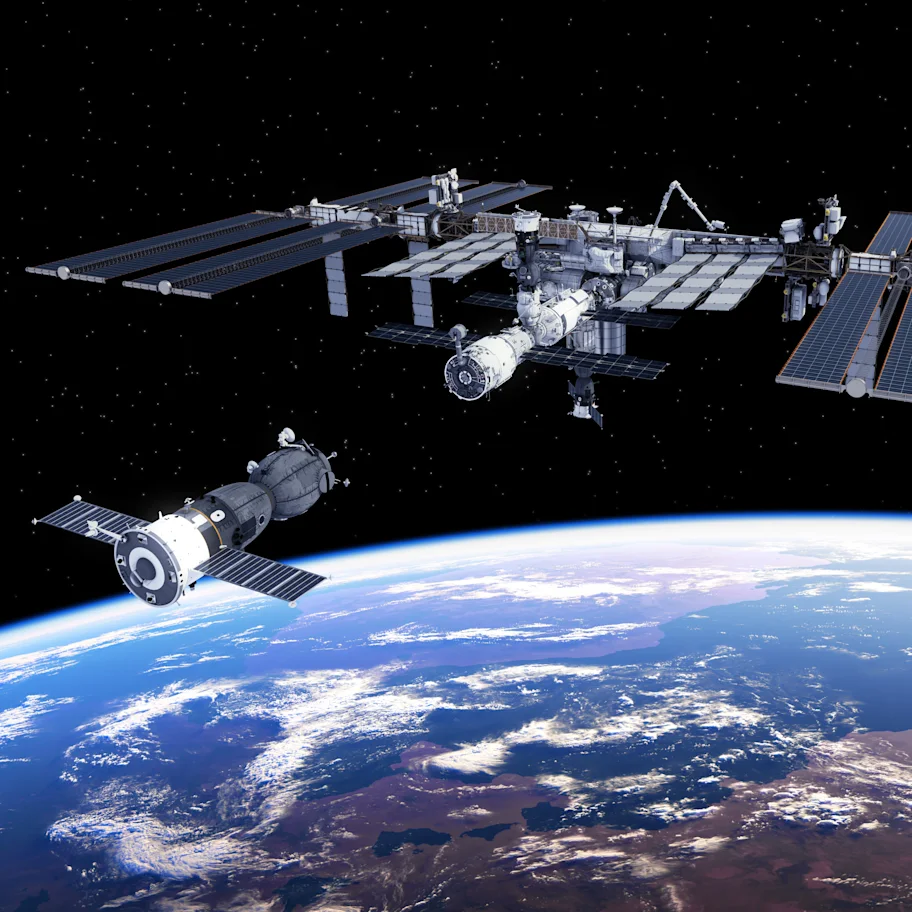
Robotic Manipulation and Capture in Space
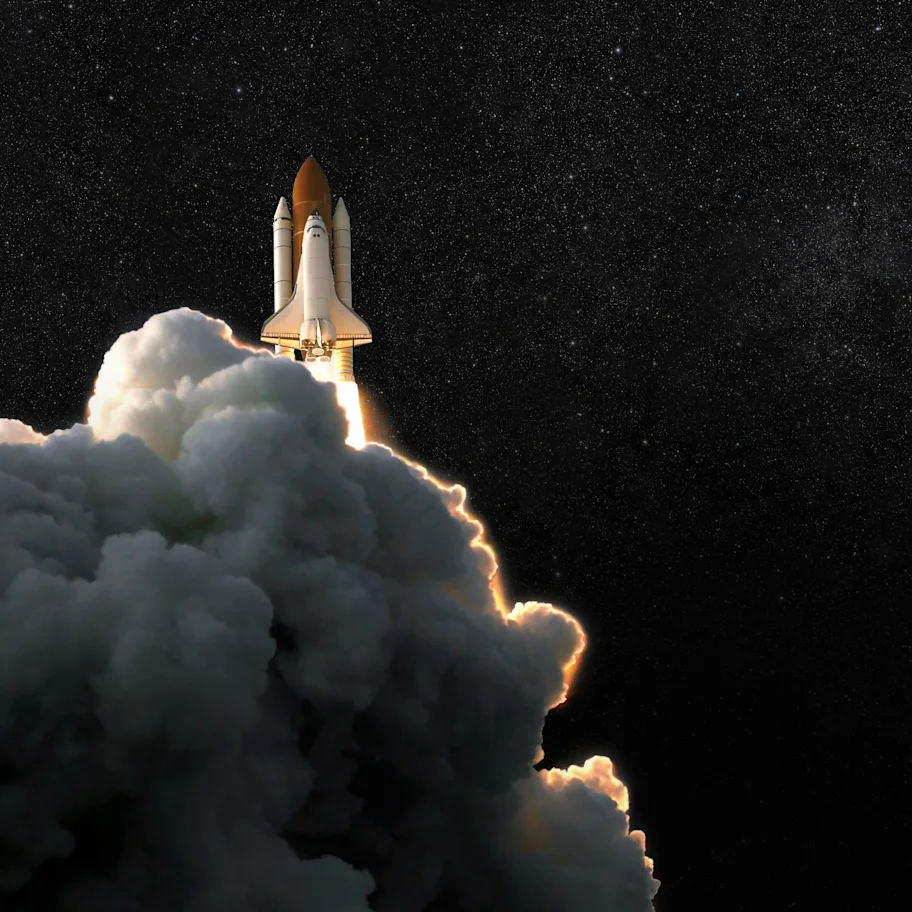
A Multidisciplinary Approach to designing Sensorimotor Adaptation countermeasures for space exploration missions

Active Experiments in Space: Past, Present, and Future
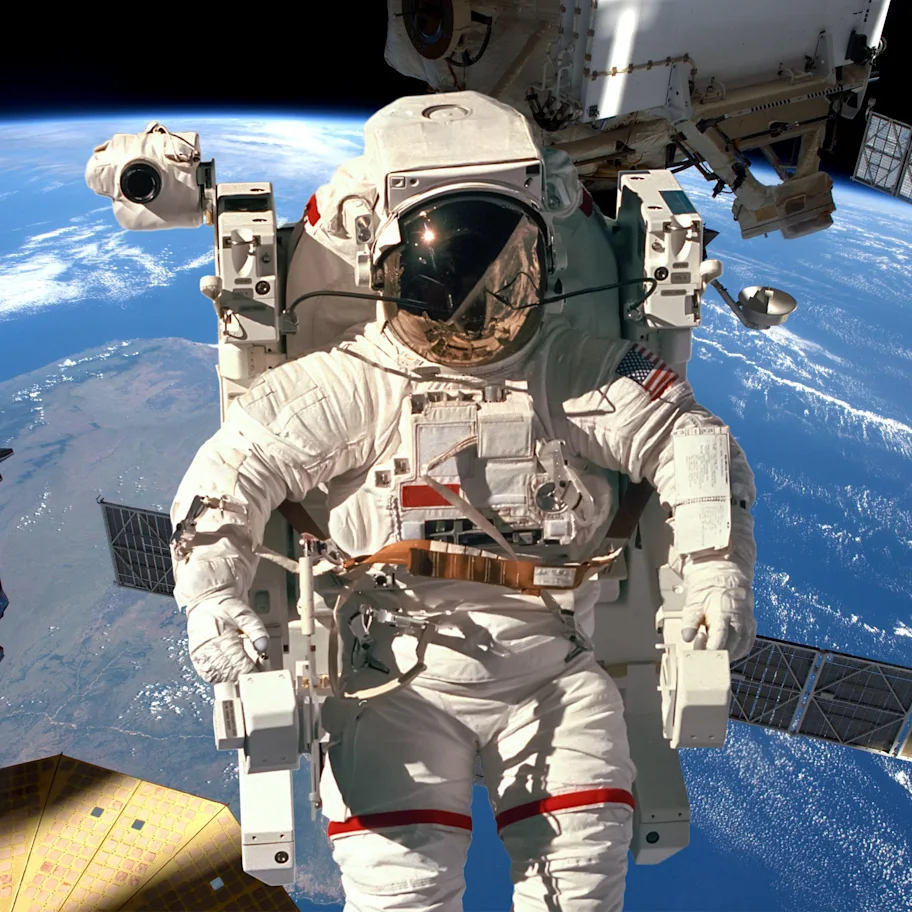
On-orbit Manufacturing and Assembly Technologies for Future Space Activities
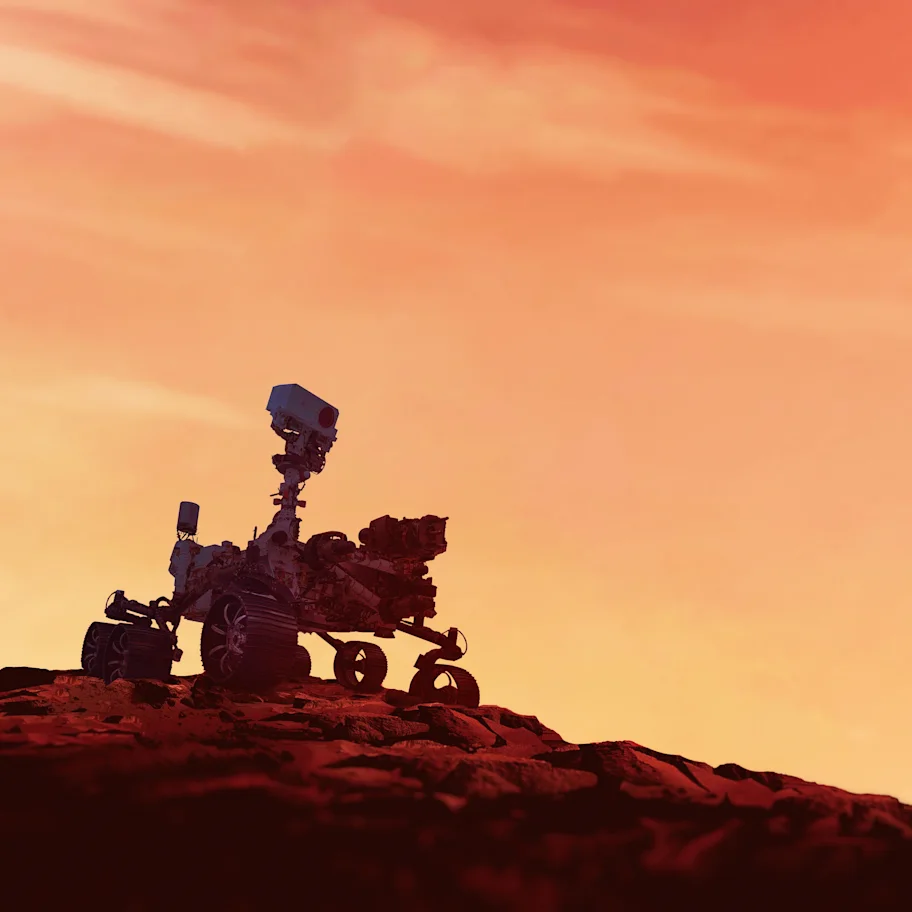
Current and Future Instrumentation for the Detection and Identification of Signatures of Life on Mars and Beyond
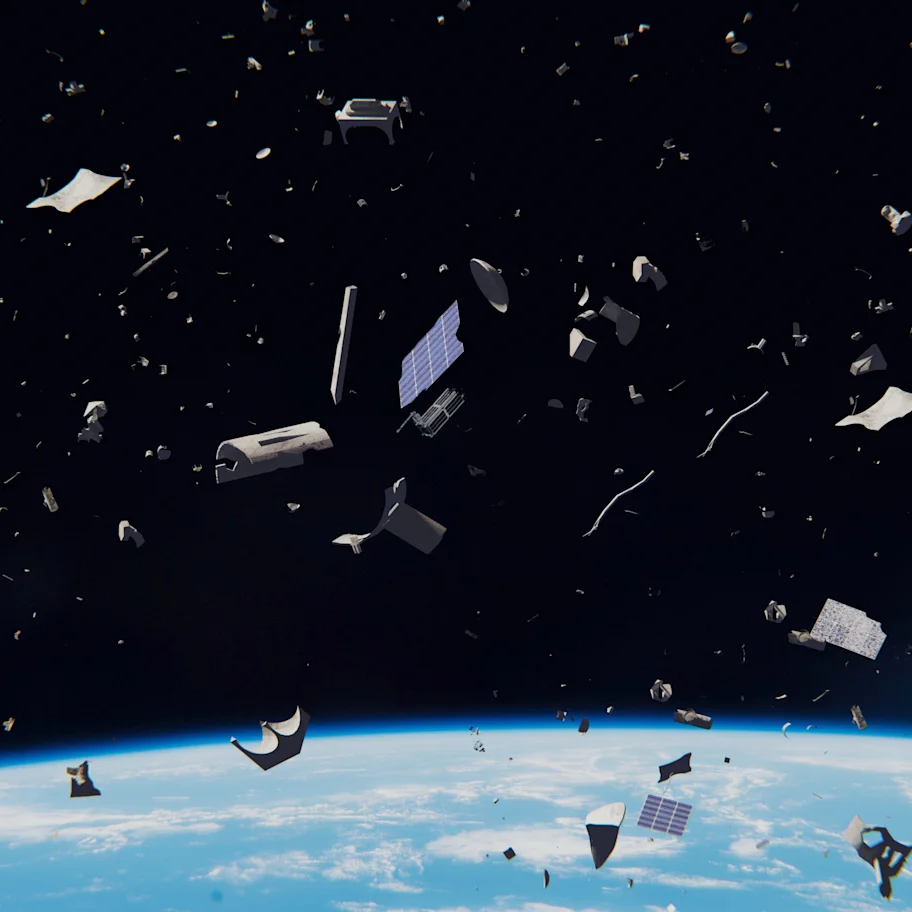
On-Orbit Servicing and Active Debris Removal: Enabling a Paradigm Shift in Spaceflight
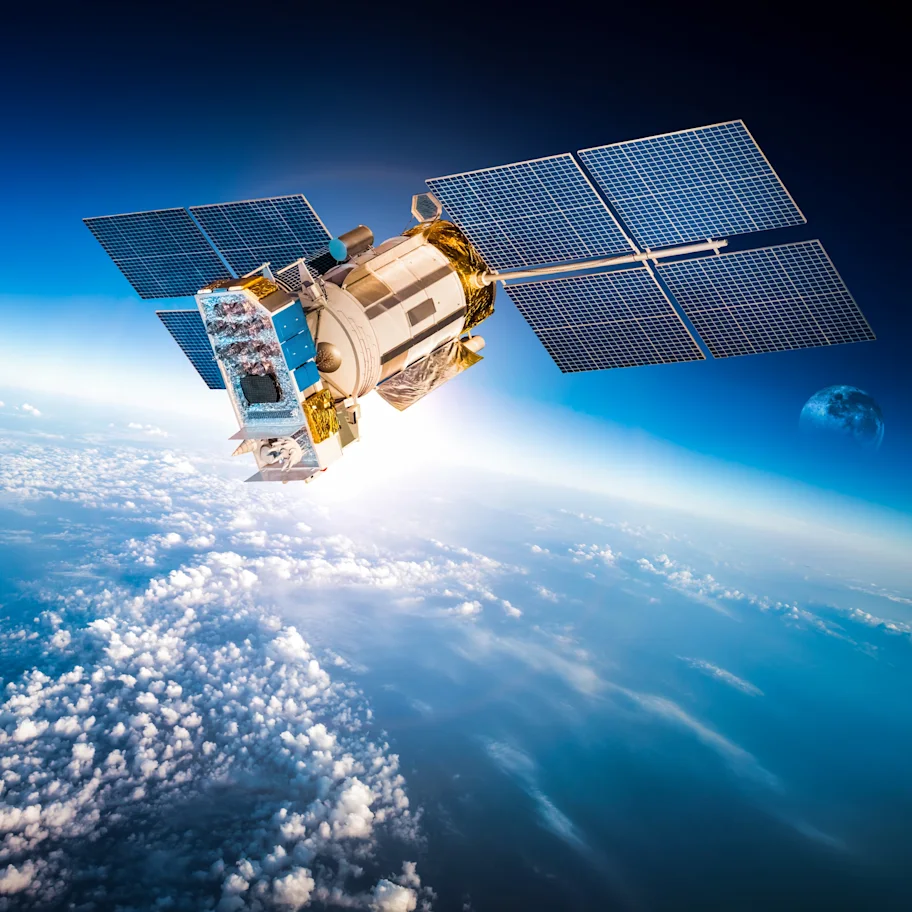
Space Weather with Small Satellites
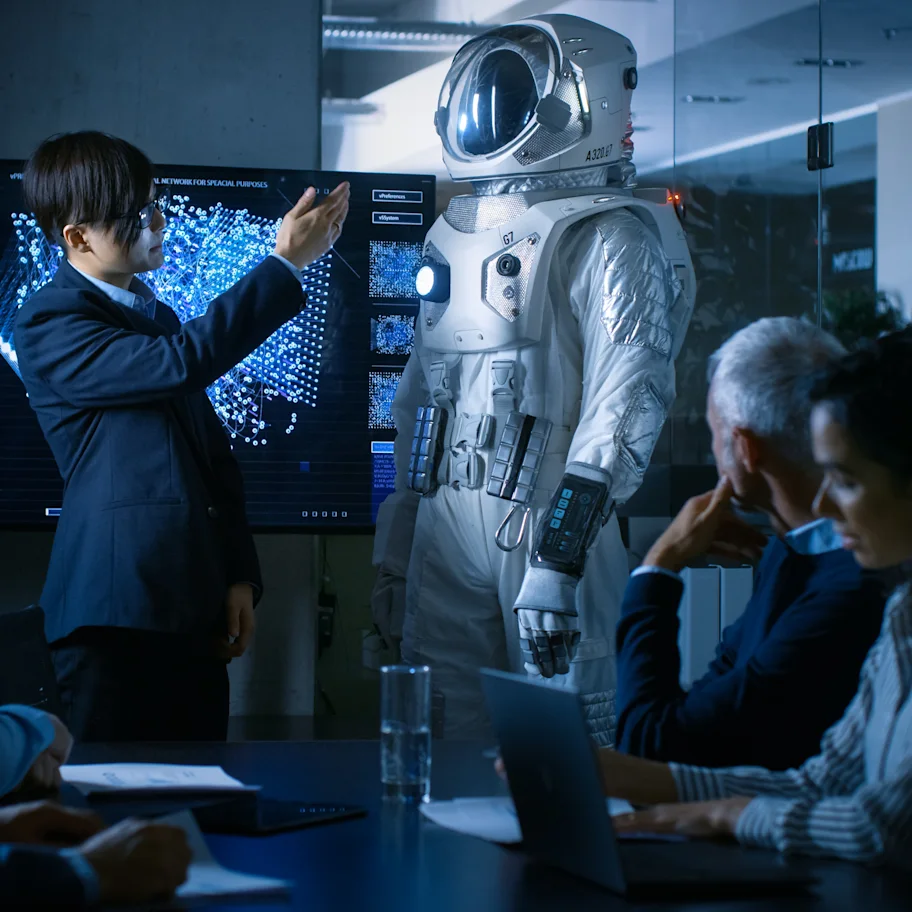
AI in the Space Sciences

Higher Plants, Algae and Cyanobacteria in Space Environments
Post related info
October 11, 2021

Frontiers Communications
Post categories, space sciences and astronomy, related subjects, research topics, related content.

Life from Earth could temporarily survive on Mars

Meet a team of scientists working to prevent interplanetary pollution that could pose a threat to life on Earth and other planets

NASA space data can cut disaster response times, costs
Latest posts.

Students who use dating apps take more risks with their sexual health

Chlorine and cocoa butter could protect corals from disease and decrease antibiotic pollution of the oceans

Consistent climate action can change the air we breathe: Here are five Frontiers articles you won’t want to miss

Scientists create a world-first 3D cell model to help develop treatments for devastating lip injuries

Frontiers ebook releases: October 2024
Get the latest research updates, subscribe to our newsletter
Research Topics List
JPL's charter is to conduct robotic space missions for NASA, to explore our own and neighboring planetary systems, understand the origin and evolution of the universe and make critical measurements to understand our home planet and help protect it. We do this by developing integrated capabilities in engineering, science and technology, in a unique environment that strives for excellence in any of the three areas. To be successful in our ability to implement missions for NASA, we foster research in those areas of space-based science that establish our leadership in the science community and those technologies that allow the innovations that are crucial to maintaining our competitive edge. Our science, technology and engineering research covers many areas of planetary, astrophysics and Earth science, both as basic research leading to new observations and mission concepts, as well as research based on the data acquired by JPL flight projects. Our technology research covers areas ranging from robotic systems, a range of in-situ and remote sensing instruments, deep space communications and navigation, information systems, precision flying and planetary protection and survivability.
Custom Essay, Term Paper & Research paper writing services
- testimonials
Toll Free: +1 (888) 354-4744
Email: [email protected]
Writing custom essays & research papers since 2008
154 hot astronomy research topics for a-grade papers.
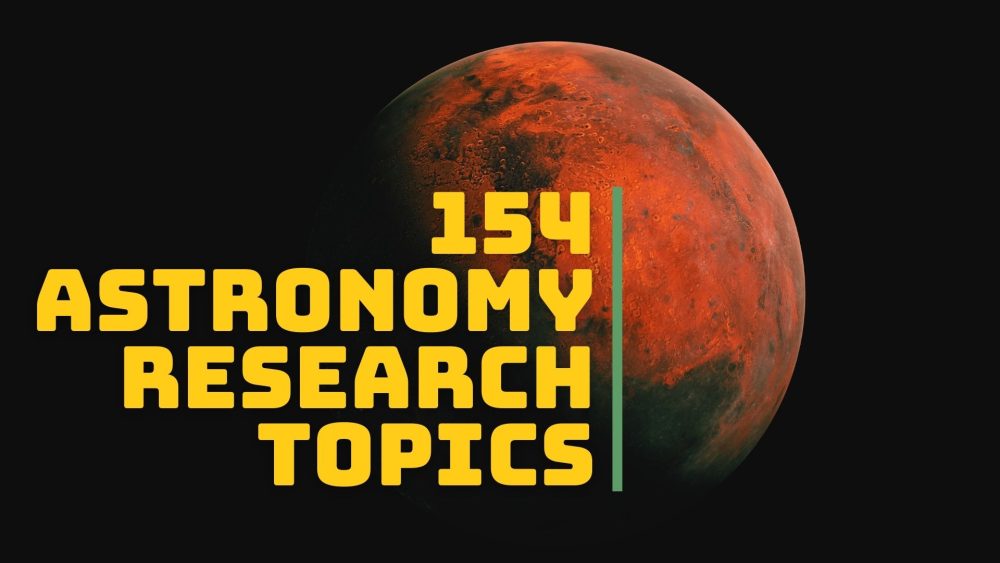
Do you have a college astronomy paper or essay and have been wondering how to get the best topic? You might also be stuck with the paper, wondering how to go about it.
The truth about astronomy is that getting interesting space topics is never easy, but how do you address the challenge? There is no need to worry anymore because we are here to help.
In this post, we list 154 astronomy paper topics and further highlight the traits of a great research paper. Why get content with standard or low-quality paper when you can get the best in your class by checking out the guide and topics, as well as getting lab report help ?
What Is Astronomy?
Before looking at the leading space science topics for your university assignment, let’s start with the definition. Astronomy is the study concerned with researching and understanding everything that takes place beyond the earth’s atmosphere. Although the advances in technology, especially on telescopes, satellites, and manned space vehicles, have helped people to peep deeper into space, this is just a scratch on the surface. There is a lot more waiting to be explored, including the controversial question, “Is there life on other planets?”
Characteristics Of A Good Astronomy Research Paper
From the definition of astronomy, it is clear that you can have a long list of astronomy project topics or ideas. Once you have picked the preferred option from our research topics in cosmology, the next step is preparing your paper. Here are the main characteristics of a good school research paper in astronomy:
- Systematic: This means that your research paper should be structured per clearly defined rules. So, students should start by reviewing requirements by their professors or teachers and think creatively of how to make their papers professional.
- Logical: This implies that the student carefully reasons all the points to ensure they support the selected topic. Although there is so much one can write on a specific topic, you must narrow it down to those points that are current and that support your topic.
- Comprehensive: Your paper also needs to be as comprehensive as possible. So, you must exhaustively identify the core points in a selected topic. It should also fit well in the current literature on the same topic, helping to advance the discipline.
- Plagiarism-Free: All universities out there have very strict rules on plagiarism. Therefore, your work must be 100% original.
- Clearly flowing points and free from errors: Finally, your paper should be arranged well to ensure that all the points flow logically from the start to the end. Again, it should be proofread to ensure it is free from errors.
Best Astronomy Essay Topics
Now that we have looked at the main characteristics of a high quality astronomy paper or essay, it is time to dig deeper into the main topics. Check out our list of the leading astronomy research topics for top grades.
Top Astronomy Research Topics
- What is the future of space exploration?
- A closer review of the big bang theory.
- Compare two theories that explain the origin of the universe.
- Stephen Hawking theories.
- Space Challenger disaster: What are the sociological impacts?
- A review of the recent space exploration breakthroughs.
- The moon landing.
- The Mars landing of space rovers.
- A deeper look at the history of astronomy.
- Reviewing the heliocentric model of the galaxy.
- Analyzing the lifecycle of a star.
- What impact does the moon have on the earth?
- Space debris and its impact on the solar system.
- What impact do humans have on the solar system?
- The rise of space tourism: What impact will it have on space exploration?
- Is space tourism a good thing?
- What could go wrong with space tourism?
- Space manufacturing: Is it a good thing?
- The mythologies associated with heavenly bodies.
- What impact do the stars have on earth?
Unique Astronomy Research Paper Topics
- A review of the Hubble telescope.
- A closer look at the Haley’s comet.
- Through the mind of early astronomers: Galileo Aristotle, and Ptolemy.
- What are the advantages of exploring space?
- The race to explore space and the cold war.
- Reviewing the first astronauts to visit the moon.
- What lessons did NASA learn from its first mission to the moon?
- Can life exist on the moon?
- What is the biggest difference between earth and moon?
- Explaining the earth’s outlook as viewed from space.
- The design of space vehicles: Are the modern models riskier compared to those used in the 20th century?
- What impact will private companies like SpaceX and Blue Origin have in astronomy?
- If we have a space station where scientists travel often, is the idea of space hotels far-fetched? A closer look at Blue Origin’s idea of a space hotel.
- Looking beyond the Milky Way.
- A review of Pluto: How does it compare to other planets?
- How does earth compare to Jupiter?
- Explain the sun’s source of heat and light for millions of years.
- Analyzing the rings of Saturn.
- A review of astronauts physical and health preparedness before setting off for space exploration.
- What effects does long stay in space have on the human body?
- What can astronauts do to reduce the danger of muscle atrophy?
- Zero gravity in space.
Awesome Astronomy Topics To Write About
- What are wormholes?
- A review of the evolution of space exploration changes in history.
- Speed of light travel: what are the implications?
- A closer look at time travel: Theory versus fiction.
- Zero gravity: What impact does it have on astronauts’ health over time?
- The interdisciplinary perspectives of space.
- Astrophysics: A review of the main controversies.
- Explore the possibility of having life on other planets.
- What implications would life on other planets have on planet earth?
- Think of yourself as an astronaut: What would be your reaction upon encounter with aliens?
- Stars and how people use them for navigation.
- Comparing different theories that explain the origin of life on planet earth.
- Space weather.
- How does space weather compare to the earth’s weather?
- Global warming: An astronaut’s view.
- The sun and its relationship with the earth.
- Comparing the sun’s relationship with Saturn and Pluto.
- Robotic space exploration: Is it a good idea?
- Constellations: A review of human interpretations.
- A review of emerging business opportunities in space.
- Space travel for non-astronauts: Is it a good idea?
- Comparing space travelling scientists to tourists: What is the difference?
Engaging Space Research Paper Topics
- What is the difference between planets and asteroids?
- How did the “northern lights” come about?
- Capture hypothesis: A review.
- What caused the Challenger to explode after take-off?
- The challenger shuttle disaster: A review of the preparations.
- What lessons did we learn from the challenger disaster?
- Was the Challenger the greatest failure in NASA’s history?
- Analyzing President Ronald Reagan’s speech after the Challenger disaster.
- Space Challenger disaster analysis: Why we are on the blink of another bigger and deadlier disaster.
- Are the current space policies ample to guide the new era of space travel?
- Dennis Tito: Looking at the experience of the first space tourists.
- Space politics: Is competition a good thing when it comes to space exploration?
- Reimagining the space: What would happen if we suddenly discovered that it was possible to inhabit the moon?
- Space will form the next generation combat zone for superpowers in competition for new resources.
- Factoring the distance and other logistics: Would mining in space be viable?
Great Space Exploration Topics
- A review of three biggest planets that orbit outside the solar system.
- Comparing the characteristics of gas planets to terrestrial planets.
- Fission Hypothesis by George Darwin.
- A review of the Giant Impact Theory.
- Exploring the theories that explain the origin of the moon.
- How long does it take for a new planet to form?
- Imagining a Marxist society living on Mars.
- Exploring the process of formation of the biggest stars in the cosmos.
- Is it possible for light to escape from the black hole?
- Determining the moon’s diameter: How accurate is the method used for calculation?
- Is the Big Bang Theory the best explanation of the origin of the universe?
- Reviewing the fate of the universe.
- Gravitational waves: Why their discovery is so important.
- Monitoring the State of the Environment using Ecologically Clean devices.
- Reviewing the doctrine of Noosphere.
- The legends of Starry Sky.
- The importance of mathematics in space explorations.
Astrophysics Research Topics For Debate
- Relativity theory and gravity.
- What is a variable star?
- Gravity and eclipse.
- Venus: Reviewing its formation.
- The mass of matter and nebulae.
- The Big Bang Theory.
- Brown Dwarf.
- Space manufacturing: What materials and products are manufactured in space?
- What happens during a solar eclipse?
- Celestial mechanics.
- Manned space shuttles.
Discussion Topics In Astronomy
- A thematic review of the heliocentric theory.
- The conflicting theories on the origin of the earth: science versus religion.
- Expecting the worst: What could go wrong with space missions?
- Is the cost and effort for space exploration worth it?
- Beyond the visible universe: What should we expect?
- How does the lunar cycle function?
- The dimensions of light in space: How does it differ after entering the earth’s atmosphere?
- What is astrophysics?
- Nonlinear, slow mode, and fast mode effects.
- Grand unification theories.
- What impact does the moon have on the oceans?
- The longitudes and latitudes of the earth.
- What are the different types of stars?
- The formation and destruction of clouds in the Galaxies.
- Meridian and transit circles: What are they?
- The galaxy cluster growth.
- A review of the molecular cloud.
Investigative Astrophysics Research Topics
- How long does it take to travel to space?
- Which is the most prominent of all planets? Is it earth?
- Survival on other planets? How to make it possible.
- Pluto should not be considered another planet: Discuss.
- Journey to Mars: Should we open it to all?
- Comparing the journeys to the International Space Station (ISS) and the Moon.
- Space keeps expanding: Explain.
- The best defense against killer asteroids.
- How to relate interplanetary matter with space activities.
- The 2012 transit of Venus: A detailed review.
- What do astronauts eat when travelling to space?
Controversial Astronomy Topics For Research Paper
- Militarization of space: Is it avoidable?
- Asteroid mining: Is it a good idea?
- A review of space exploration issues and connection to women.
- State exploration is very important: Approve or disapprove this statement.
- Colonizing other planets: Is it ethical?
- Terraforming on Mars.
- The security challenges of space explorations.
- Space exploration: Does it have any impacts on planet earth.
- Using VR and AR should replace humans for space explorations.
Other Cool Astronomy Topics
- The impact of the sun on water bodies.
- Interstellar extinction: What is the cause?
- What is the deep impact mission?
- Essential requirements for space travel.
- Preparing for space travel.
- Is there an earth-like planet that is habitable?
- Solar systems with two stars: How do they operate?
- Comparing the preparation for space tourists and astronauts.
- Where do asteroids come from?
- What is antimatter?
Seek Help From The Best Paper Writing Service
Now that we have listed the characteristics of a great research paper, are you ready to write the assignment? If you find it challenging, know that you are not alone. A lot of students find it tough because the topics are very broad and require a lot of research. “I need a paper written for me” is a thought of many, not just you. Well, no matter the reason why preparing the paper is challenging, you should seek help from online expert writers.
Our service works with professionals, and you can count on them to the best grade in your paper. They are native English writers with a lot of experience in writing custom astronomy papers. The service is also secure and trustworthy, implying that no one other than you can know that the paper was bought. The writers are also excellent in editing, cheap and fast. They will handle even your papers with very tight deadlines. All that you need is to visit our site and tell us to “ write my paper .”


Suggested Searches
Climate Change
Expedition 64
- Mars perseverance
- SpaceX Crew-2
- International Space Station
- View All Topics A-Z
Humans in Space
Earth & Climate
The Solar System
The Universe
Aeronautics
Learning Resources
News & Events
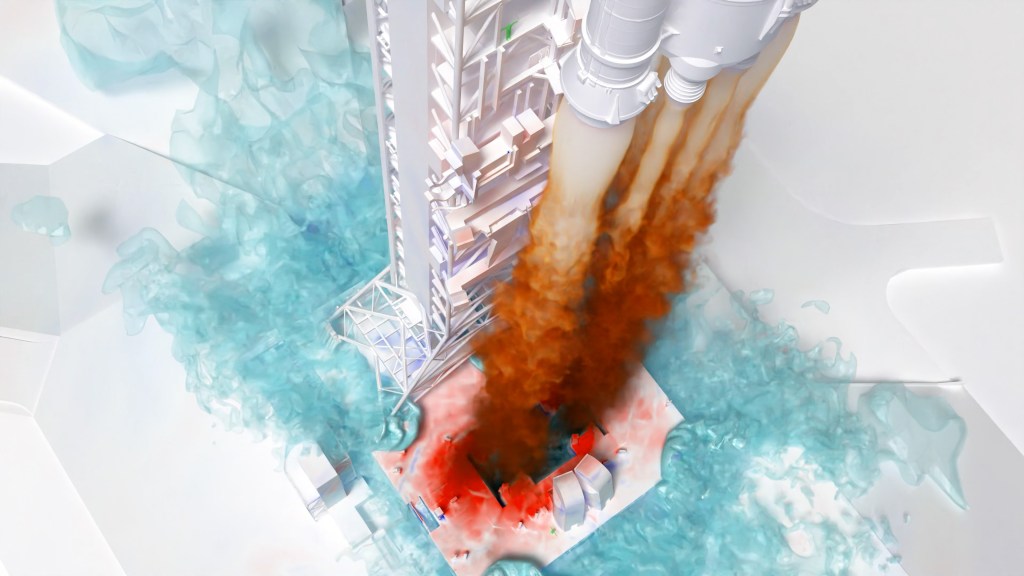
Six Ways Supercomputing Advances Our Understanding of the Universe
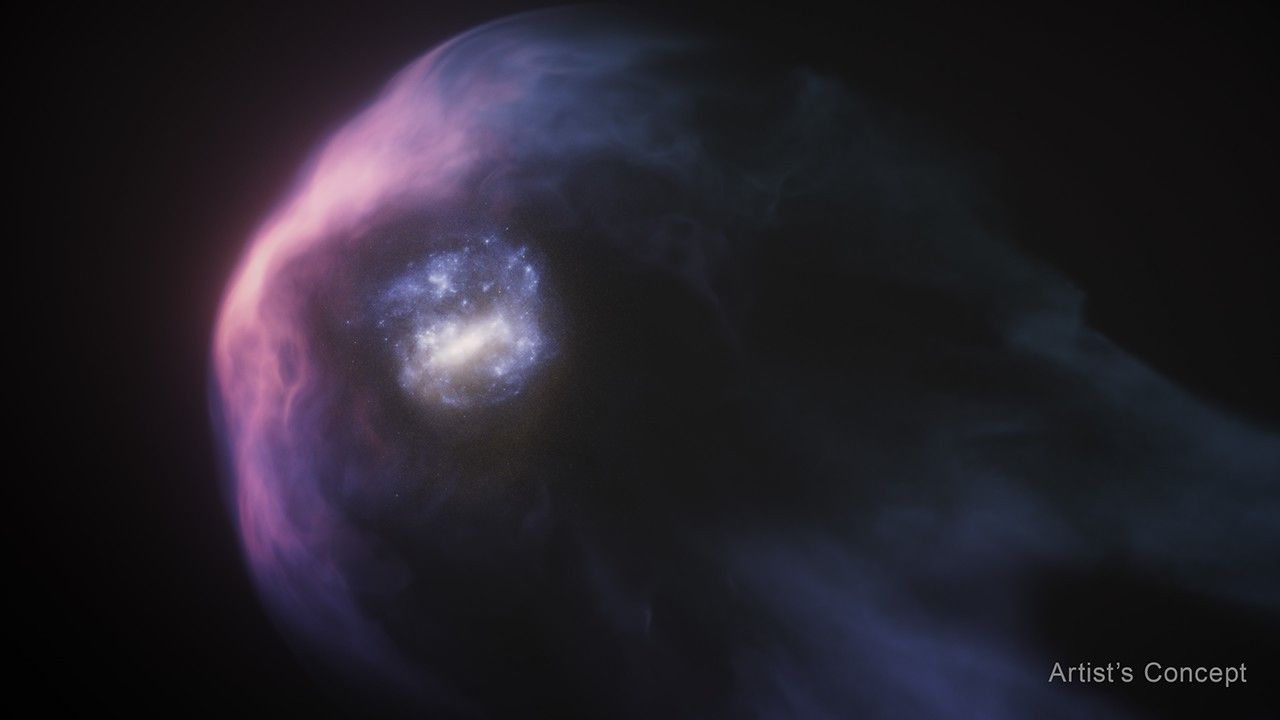
NASA’s Hubble Sees Aftermath of Galaxy’s Scrape with Milky Way

What’s Up: November 2024 Skywatching Tips from NASA
- Search All NASA Missions
- A to Z List of Missions
- Upcoming Launches and Landings
Spaceships and Rockets
- Communicating with Missions
- James Webb Space Telescope
Hubble Space Telescope
- Why Go to Space
Commercial Space
- Destinations
- Living in Space
- Explore Earth Science
- Earth, Our Planet
- Earth Science in Action
- Earth Multimedia
- Earth Science Researchers
- Pluto & Dwarf Planets
- Asteroids, Comets & Meteors
The Kuiper Belt
The Oort Cloud
Skywatching
- The Search for Life in the Universe
Black Holes
The Big Bang
- Dark Energy & Dark Matter
Earth Science
Planetary Science
- Astrophysics & Space Science
- The Sun & Heliophysics
Biological & Physical Sciences
Lunar Science
Citizen Science
Astromaterials
Aeronautics Research
Human Space Travel Research
Science in the Air
NASA Aircraft
Flight Innovation
Supersonic Flight
Air Traffic Solutions
Green Aviation Tech
Drones & You
Technology Transfer & Spinoffs
- Space Travel Technology
- Technology Living in Space
- Manufacturing and Materials
Science Instruments
For Kids and Students
For Educators
- For Colleges and Universities
For Professionals
Science for Everyone
- Requests for Exhibits, Artifacts, or Speakers
STEM Engagement at NASA
- NASA's Impacts
- Centers and Facilities
- Directorates
Organizations
People of NASA
Internships
- Our History
Doing Business with NASA
Get Involved

NASA en Español
Aeronáutica
- Ciencias Terrestres
- Sistema Solar
- All NASA News
- Video Series on NASA+
Newsletters
Social Media
Media Resources
- Upcoming Launches & Landings
Virtual Guest Program
- Image of the Day
- Sounds and Ringtones
Interactives
- STEM Multimedia

Hubble Takes a Look at Tangled Galaxies

NASA’s EMIT Will Explore Diverse Science Questions on Extended Mission
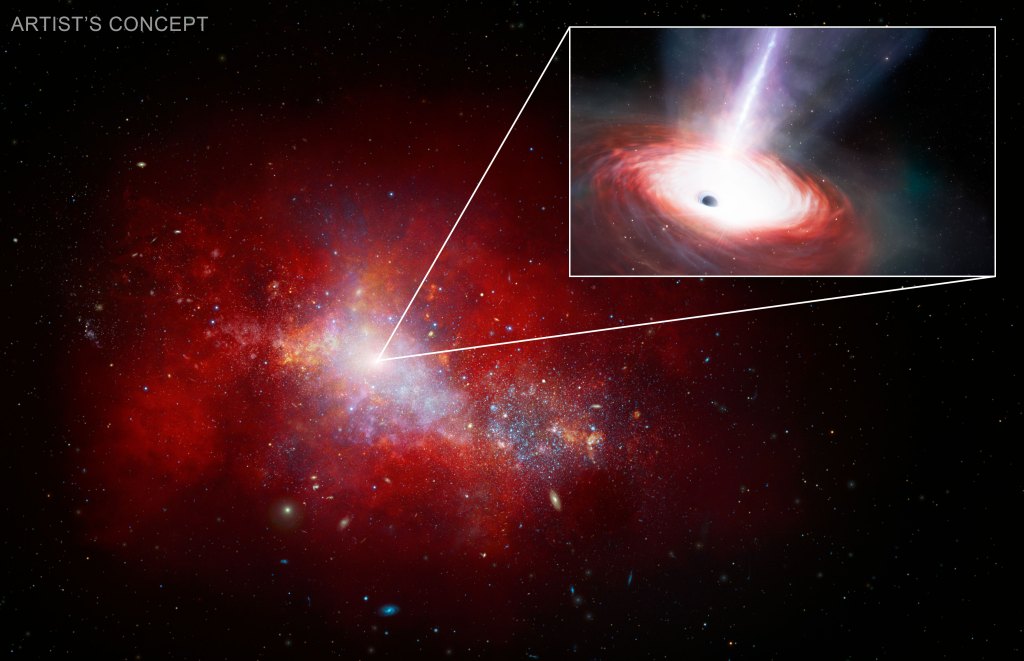
Astronomers Find Early Fast-Feeding Black Hole Using NASA Telescopes

Wearable Tech for Space Station Research

Station Science Top News: Nov. 8, 2024
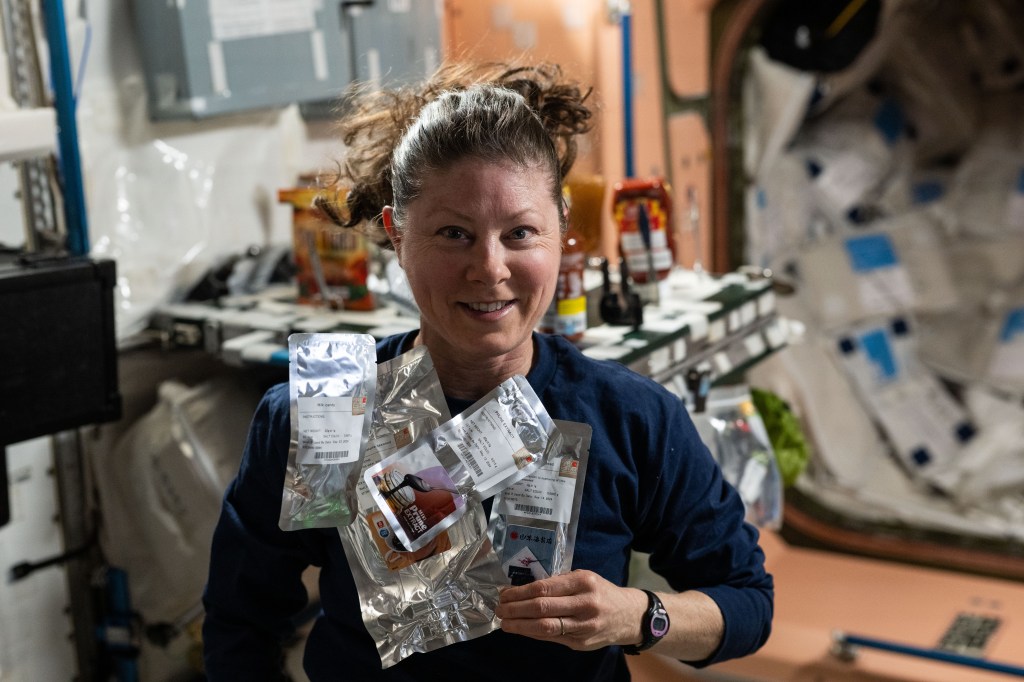
NASA Shares Space Food Insight with Commercial Food Industry
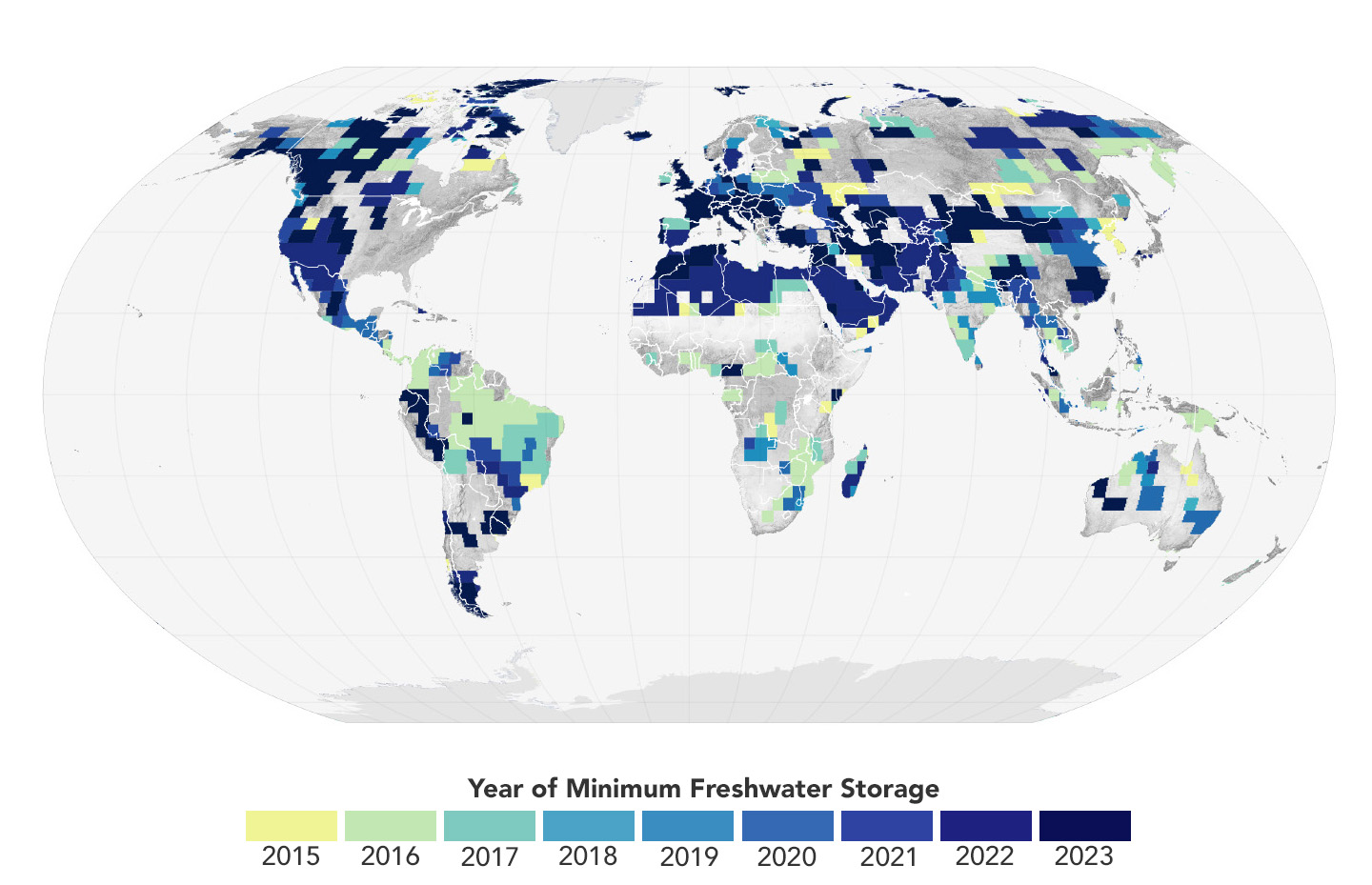
NASA Satellites Reveal Abrupt Drop in Global Freshwater Levels

NASA Data Helps International Community Prepare for Sea Level Rise
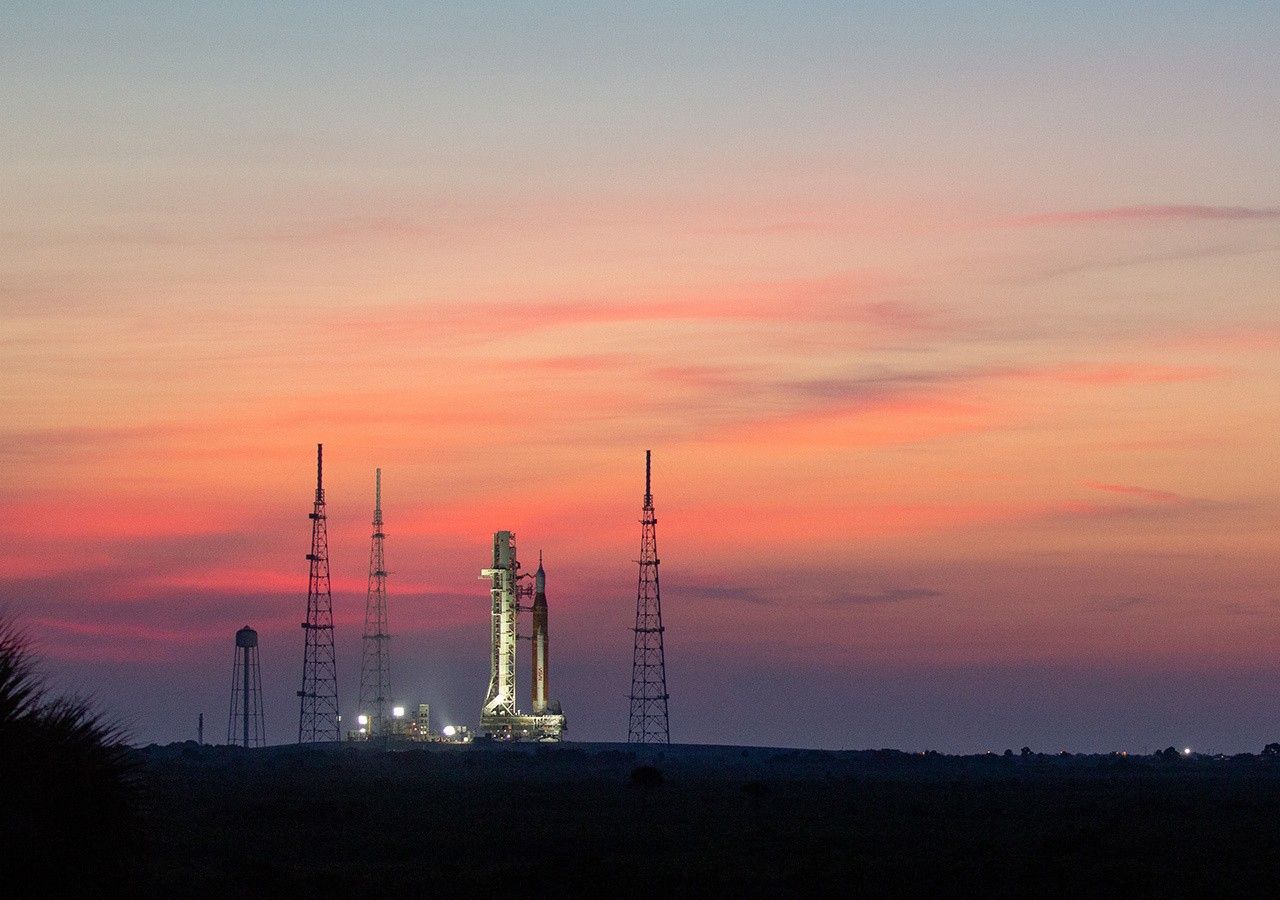
F.12 Artemis IV Deployed Instruments Program Final Text and Due Dates Released.
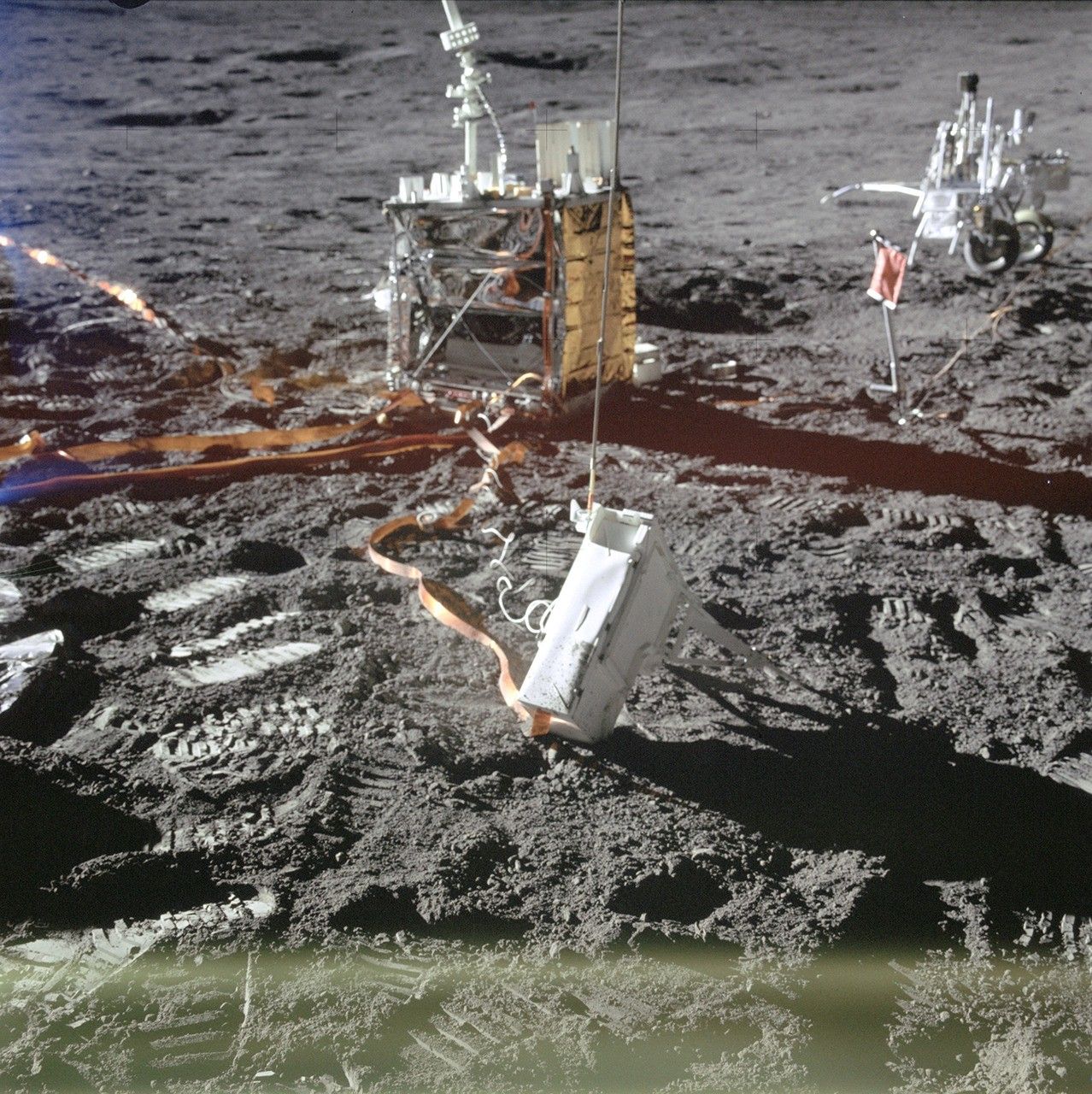
Amendment 51: F.13 Lunar Terrain Vehicle Instruments Program Correction.
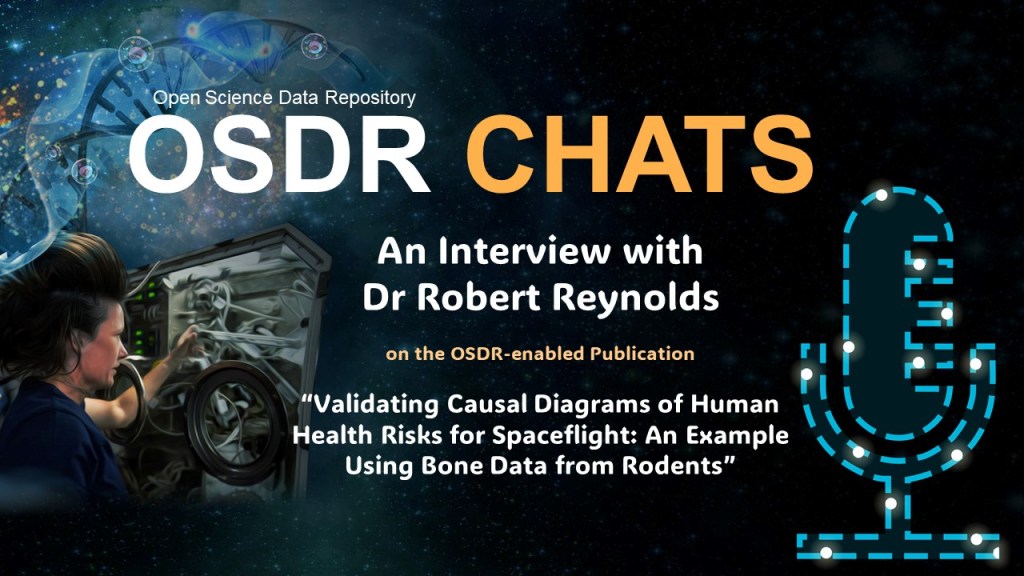
OSDR Chats with Dr Robert Reynolds

Dynamic Spin Rig Publications
Speed publications.

NASA Goddard Lidar Team Receives Center Innovation Award for Advancements
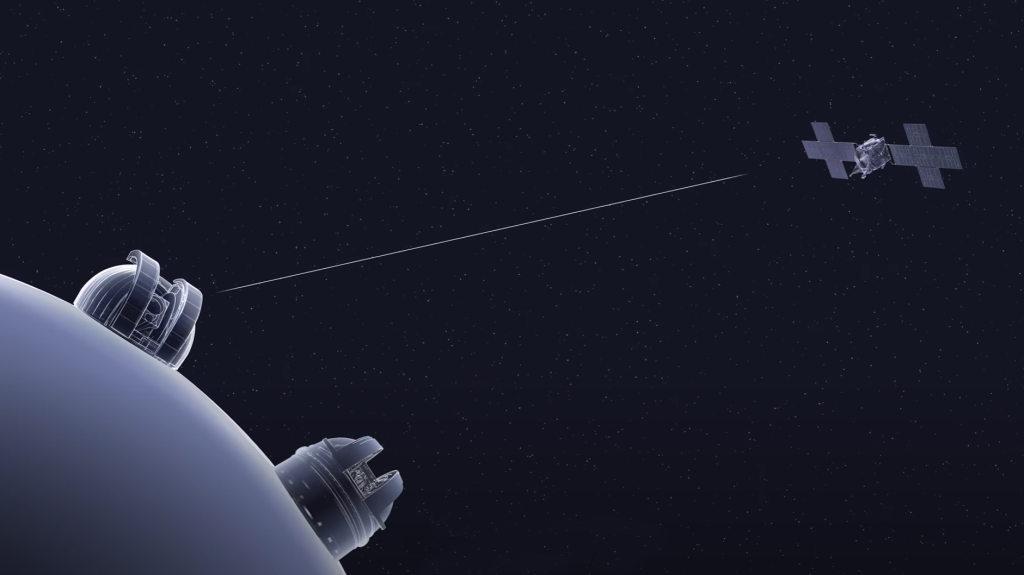
Precision Pointing Goes the Distance on NASA Experiment
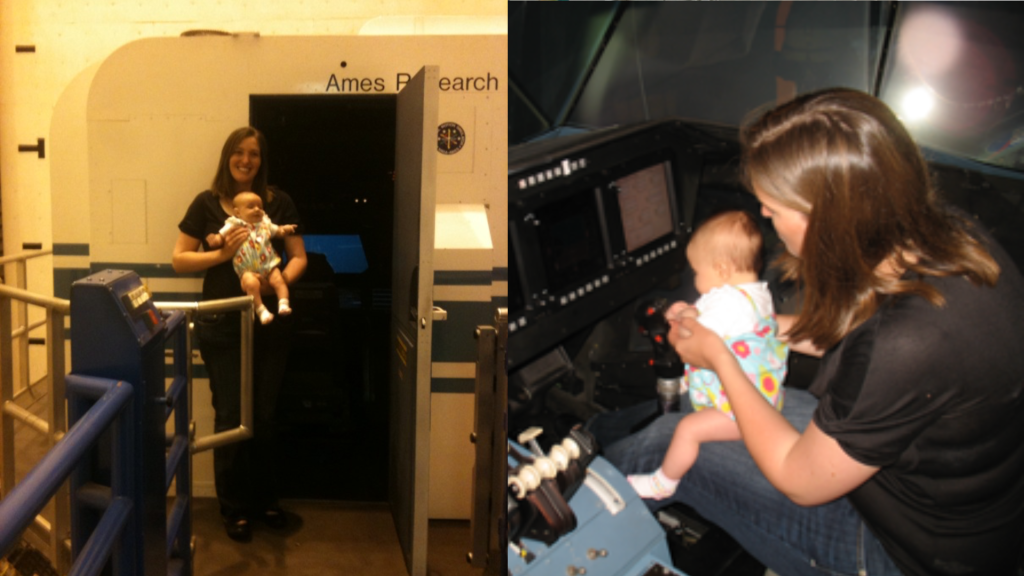
Math, Mentorship, Motherhood: Behind the Scenes with NASA Engineers

Student-Built Capsules Endure Heat of Re-entry for NASA Science
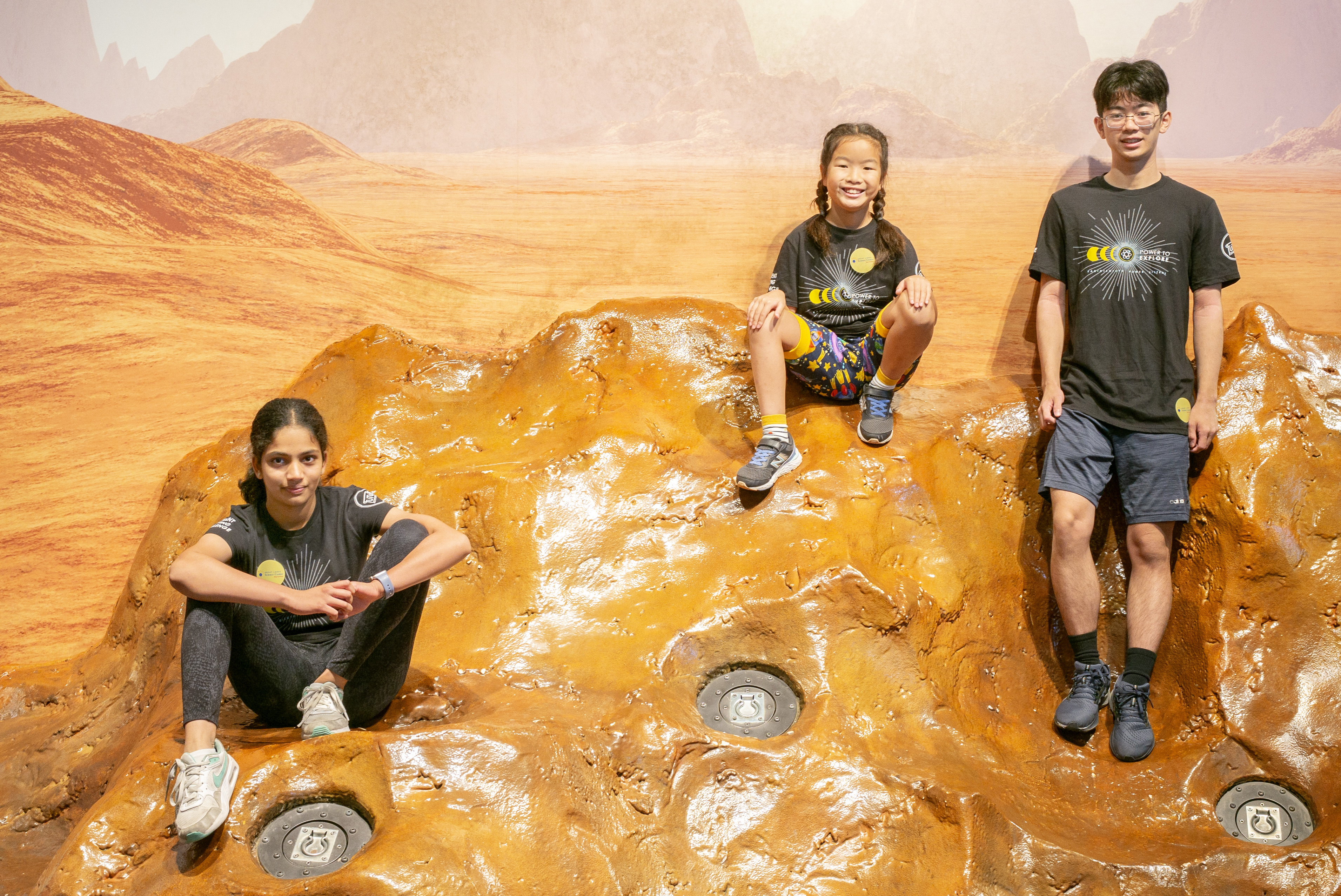
Power to Explore STEM Writing Challenge

NASA Seeks Options for Future Headquarters Building
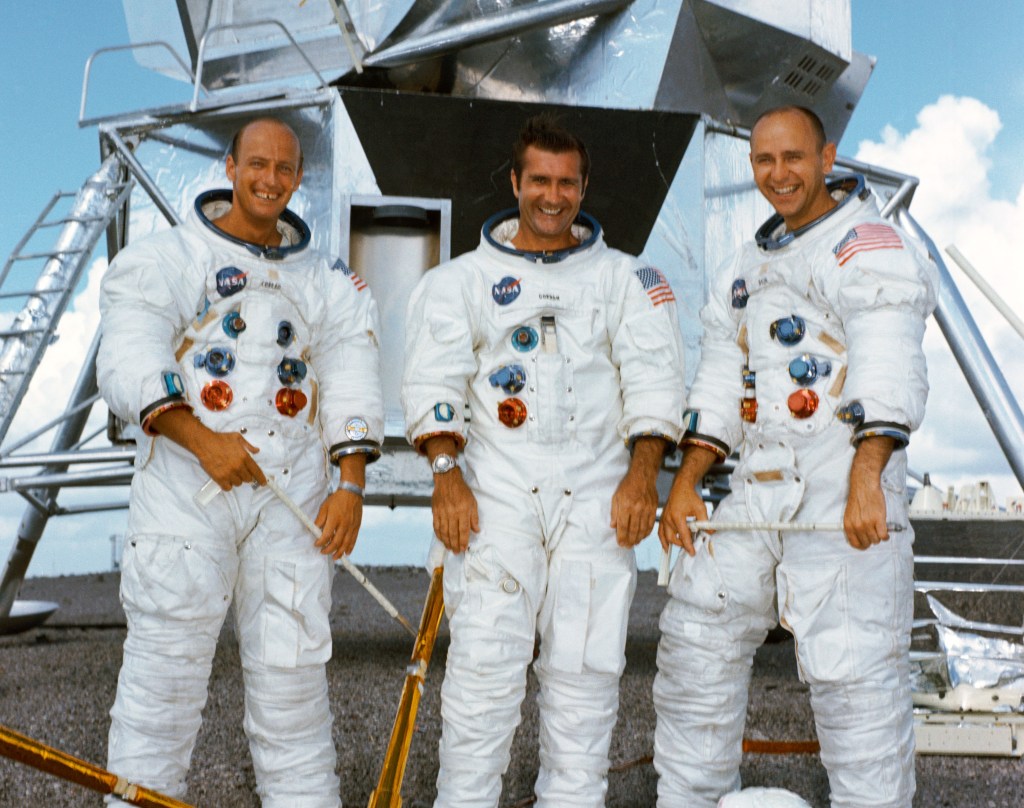
55 Years Ago: Apollo 12 Makes a Pinpoint Landing on the Moon

El X-59 enciende su motor por primera vez rumbo al despegue

La NASA lleva un dron y un rover espacial a un espectáculo aéreo

Destacado de la NASA: Felipe Valdez, un ingeniero inspirador
A to z topics listing.
Use this A to Z Topics listing to discover all things NASA!
2017 Solar Eclipse
2023 Annular Eclipse
2024 Solar Eclipse
3D Tissue Chips
67P/Churyumov-Gerasimenko
AAM Drones and You
Academy of Program / Project & Engineering Leadership
Accessibility at NASA
Accessing Flight Tests
ACE (Advanced Composition Explorer)
Acerca de NASA
ACME (Advanced Combustion via Microgravity Experiments)
AcrimSat (Active Cavity Irradiance Monitor Satellite)
ACT (Atmospheric Carbon and Transport) – America
ACTE (Adaptive Compliant Trailing Edge)
Active Galaxies
ADEOS (Advanced Earth Observing Satellite) / MIDORI
Advanced Air Transport Technology
Advanced Air Vehicles Program
Advanced Composites
Advanced Studies & Concepts (PACE)
Advanced Spacesuits
Aeronautics Research Mission Directorate
Aeronautics Technology
Aerosciences Evaluation Test Capabilities
Aerospace Safety Advisory Panel
AIM (Aeronomy of Ice in the Mesosphere)
Air Mobility Pathfinders Project
Air Traffic Control Labs
Airborne Science
AirMOSS (Airborne Microwave Observatory of Subcanopy and Subsurface)
AJAX (Alpha Jet Atmospheric eXperiment)
Akatsuki/Venus Climate Orbiter mission (PLANET-C)
Alan B. Shepard Jr.
Alan G. Poindexter
Alan L. Bean
Albert Sacco Jr.
Alfred M. Worden
Analog Missions
Andre Douglas
Andrew J. Feustel
Andrew M. Allen
Andrew R. Morgan
Andrew S. W. Thomas
Animal Biology
Anna L. Fisher
Anne C. McClain
Antarctic Stations
Antarctic Station NSF
Anthony W. England
APH (Advanced Plant Habitat)
Apollo Program
Apollo 15 Subsatellite
Apollo 16 Subsatellite
Apollo-Soyuz Test Project
Applied Sciences Program
Apply for Funding
ARCTAS (Arctic Research of the Composition of the Troposphere from Aircraft and Satellites)
ARIEL (Atmospheric Remote-sensing Infrared Exoplanet Large-survey)
Armstrong Flight Research Center
Armstrong Test Facility (Plum Brook)
Artemis Campaign Development Division
ASCA (Advanced Satellite for Cosmology and Astrophysics)
Asteroid Initiative
Asian American and Native Hawaiian Pacific Islander Heritage
ASTHROS (Astrophysics Stratospheric Telescope for High Spectral Resolution Observations at Submillimeter-wavelengths)
Astro Observatory 1
Astro Observatory 2
Astrobiology
Astronaut Candidates
Astrophysics
Astrophysics Division
Astrophysics Explorers Program
Astrophysics Pioneers
Astrophysics Research Program
Atmospheric Composition
ATLAS (Atmospheric Laboratory of Applications and Science)
Atmospheric Tomography Mission (ATom)
ATS (Applications Technology Satellite Program )
ATTREX (Airborne Tropical TRopopause Experiment)
Awarded Abstracts
AWE (Atmospheric Waves Experiment)
B-377 Super Guppy
Barbara R. Morgan
BARREL (Balloon Array for Radiation-belt Relativistic Electron Losses)
Barry E. Wilmore
BBXRT (Broad Band X-ray Telescope)
BECCAL (Bose Einstein Condensates & Cold Atoms Lab)
Become an Astronaut
Benefits Back on Earth
Benefits to Humanity
Benefits to Science
Benjamin Alvin Drew
BepiColombo
Bernard A. Harris Jr.
Bill Nelson
Binary Stars
Biological Experiment-01 (BioExpt-01)
BION / Biocosmos
Black History Month
Boeing Starliner
Bonnie J. Dunbar
Brand Guidelines Center
Brent W. Jett
Brewster H. Shaw Jr.
Brian Duffy
Brian T. O’Leary
BRIC (Biological Research in Canisters)
Brown Dwarfs
Bruce E. Melnick
Bruce McCandless
Bryan D. O’Connor
Budget & Annual Reports
Buzz Aldrin
Byron K. Lichtenberg
Caldwell Catalog
CALIPSO (Cloud-Aerosol Lidar and Infrared Pathfinder Satellite)
Callie First Graphic Novel
Candidate Astronauts
Carbon Cycle
Carl E. Walz
Carl J. Meade
Carlos I. Noriega
Carruthers Geocorona Observatory (GLIDE)
CARVE (Carbon in Arctic Reservoirs Vulnerability Experiment)
Cassini-Huygens
Catherine G. Coleman
CATS (Cloud-Aerosol Transport System)
Cell and Molecular Biology
Centennial Challenges
Centennial Challenges News
Center Innovation Fund Center of Excellence for Collaborative Innovation (CoECI)
CERES (Clouds and the Earth’s Radiant Energy System)
CeREs (Compact Radiation Belt Explorer)
Ceres Dwarf Planet
Cessna C206
CGRO (Compton Gamma Ray Observatory)
CHAMP (Challenging Mini-satellite Payload)
Chandra X-ray Observatory
Chandrayaan-1
Chandrayaan-2
Chandrayaan-3
Charles A. Bassett II
Charles Camarda
Charles Conrad Jr.
Charles D. Gemar
Charles D. Walker
Charles E. Brady Jr.
Charles F. Bolden Jr.
Charles G. Fullerton
Charles J. Precourt
Charles Lacy Veach
Charles M. Duke Jr.
Charles O. Hobaugh
Chiaki Mukai
CHIPS (Cosmic Hot Interstellar Plasma Spectrometer)
Christina Birch
Christina H. Koch
Christopher J. Ferguson
Christopher J. Loria
Christopher J. Cassidy
Christopher L. Williams
Ciencia e Investigación
CINDI (Coupled Ion Neutral Dynamic Investigation)
CIPHER (Complement of Integrated Protocols for Human Exploration Research)
Cirrus SR-22
Clayton C. Anderson
Clifton C. Williams Jr.
Climate Science
CLPS (Commercial Lunar Payload Services)
COBE (Cosmic Background Explorer)
Columbia 300
Combustion Science
Commercial Crew
Commercial Crew Rockets
Commercial Crew Spacecraft
Commercial Lunar Payload Services (CLPS)
Commercial Space Programs
Commercial Supersonic Technology
Communicating and Navigating with Missions
Community of Practice Webinar
Community Partners
Complex Fluids
Conjunction Assessment Risk Analysis Team (CARA)
Constellations
CONTOUR (COmet Nucleus TOUR)
Convergent Aeronautics Solutions
CORAL (COral Reef Airborne Observatory)
Coronal Mass Ejections
COSI (Compton Spectrometer and Imager)
Cosmic Origins Program
Courses & Curriculums for Professionals
COVID-19 Response
Crab Nebula
Crew Health and Performance Exploration Analog (CHAPEA)
Crew Vehicle Systems Research Facility
Cross Program Integration
CRRES (Combined Release and Radiation Effects Satellite)
Cryogenic Fluid Management (CFM)
Cryogenic Propellant Handling
CubeSat Launch Initiative
CubeSat Or Microsat Probabilistic and Analogies Cost Tool (COMPACT)
CuPID (Cusp Plasma Imaging Detector)
Curiosity (Rover)
Curtis L. Brown Jr.
CUSP (CubeSat Mission to Study Solar Particles)
Cycles & Focus Areas
CYGNSS (Cyclone Global Navigation Satellite System)
Dale A. Gardner
Daniel C. Brandenstein
Daniel C. Burbank
Daniel M. Tani
Daniel T. Barry
Daniel W. Bursch
Dark Matter & Dark Energy
DART (Double Asteroid Redirection Test)
Data Resources
David A. Wolf
David C. Hilmers
David C. Leestma
David M. Brown
David M. Walker
David R. Scott
DAVINCI (Deep Atmosphere Venus Investigation of Noble gases, Chemistry, and Imaging)
Deep Impact / EPOXI (Extrasolar Planet Observation and Deep Impact Extended Investigation)
Deep Space 1
Deep Space Atomic Clock
Deep Space Network (DSN)
Deep Space Optical Communications (DSOC)
Deniz Burnham
Desert RATS (Research and Technology Studies)
Developmental, Reproductive and Evolutionary Biology
(DECLIC) DEvice for the study of Critical LIquids and Crystallization
Didymos & Dimorphos
Diffuse X-Ray Spectrometer (DXS)
DISCOVER AQ (Deriving Information on Surface Conditions from COlumn and VERtically Resolved Observations Relevant to Air Quality)
Discovery Program
Diversity at NASA
Dominic A. Antonelli
Dominic L. Gorie
Don L. Lind
Donald A. Thomas
Donald E. Williams
Donald H. Peterson
Donald K. Slayton
Donald L. Holmquest
Donald R. McMonagle
Donald R. Pettit
Donn F. Eisele
Dorothy M. Metcalf-Lindenburger
Douglas G. Hurley
Douglas H. Wheelock
Dragon Crew Spacecraft
Draper SERIES-2
DSCOVR (Deep Space Climate Observatory)
Duane G. Carey
Duane Graveline
Dust Storms
Dwarf Planets
Dynamics Explorer (DE)
Early Career Faculty
Earth Information Center
Earth Observatory
Earth Observing-1 (EO-1)
Earth Science Data Systems Program
Earth Science Division
Earth Science Technology Office
Earth Surface & Interior
Earth System Observatory (ESO)
Earthquakes
Earth’s Atmosphere
Earth’s Magnetic Field
Earth’s Moon
Earth’s Vital Signs
Ecostress (ECOsystem Spaceborne Thermal Radiometer Experiment on Space Station)
Edgar D. Mitchell
Edward G. Gibson
Edward G. Givens Jr.
Edward H. White II
Edward M. Fincke
Edward T. Lu
Eileen M. Collins
ELaNa (Educational Launch of Nanosatellites)
Electrified Powertrain Flight Demo
ElectroHydroDynamic (EHD) Test Chamber
Electromagnetic Spectrum
ELFIN (Electron Losses & Fields Investigation)
Ellen Ochoa
Ellen S. Baker
Ellington Field
Elliot M. See Jr.
Elliptical Galaxies
Ellison S. Onizuka
Emergency & Pandemic Response
EMIT (Earth Surface Mineral Dust Source Investigation)
Environmental Management Division (EMD)
Environmental Science Services Administration (ESSA)
ERBS (Earth Radiation Budget Satellite)
Eric A. Boe
EscaPADE (Escape and Plasma Acceleration and Dynamics Explorers)
Established Program to Stimulate Competitive Research (EPSCoR)
Eta Aquarids
E-TBEx (Enhanced Tandem Beacon Experiment)
Eugene A. Cernan
Eugene H. Trinh
Europa Clipper
EUVE (Extreme-Ultraviolet Explorer)
Everyday Extraordinary Stories
Exoplanet Catalog
Exoplanet Discoveries
Exoplanet Exploration Program
Exoplanet Science
Exoplanet Travel Bureau
Expedition 1
Expedition 2
Expedition 3
Expedition 4
Expedition 5
Expedition 6
Expedition 7
Expedition 8
Expedition 9
Expedition 10
Expedition 11
Expedition 12
Expedition 13
Expedition 14
Expedition 15
Expedition 16
Expedition 17
Expedition 18
Expedition 19
Expedition 20
Expedition 21
Expedition 22
Expedition 23
Expedition 24
Expedition 25
Expedition 26
Expedition 27
Expedition 28
Expedition 29
Expedition 30
Expedition 31
Expedition 32
Expedition 33
Expedition 34
Expedition 35
Expedition 36
Expedition 37
Expedition 38
Expedition 39
Expedition 40
Expedition 41
Expedition 42
Expedition 43
Expedition 44
Expedition 45
Expedition 46
Expedition 47
Expedition 48
Expedition 49
Expedition 50
Expedition 51
Expedition 52
Expedition 53
Expedition 54
Expedition 55
Expedition 56
Expedition 57
Expedition 58
Expedition 59
Expedition 60
Expedition 61
Expedition 62
Expedition 63
Expedition 65
Expedition 66
Expedition 67
Expedition 68
Expedition 69
Expedition 70
Expeditions
Exploration Capabilities Division
EFT 1 (Exploration Flight Test 1)
Exploration Ground Systems
Exploration Operations Division
Exploration Systems Development Mission Directorate
Explorer 33
Explorer 35
Explorer 49
Explorers Program
Extraterrestrial Life
Extreme Ultraviolet High-Throughput Spectroscopic Telescope (EUVST) Epsilon
Extreme Weather Events
EZIE (Electrojet Zeeman Imaging Explorer)
F. Drew Gaffney
Faces of NASA
FAST (Fast Auroral SnapshoT Explorer)
FASTSat (Fast, Affordable, Science and Technology Satellite)
FBCE (Flow Boiling and Condensation Experiment)
Featured Careers
Fermi Gamma-Ray Space Telescope
Fernando Caldeiro
Film & Documentary Guidelines
Find Your Place
First Woman Graphic Novel
Fission Surface Power (FSP)
FLARE (Flammability Limits At Reduced-g Experiment)
Flight Demos Capabilities
Flight Opportunities Program
Flight Program
Flight Providers
Flight Simulation
Fluid Physics
For Colleges & Universities
Former Astronauts
Francis R. Scobee
Franco Malerba
Frank Borman
Frank L. Culbertson Jr.
Frank Rubio
Franklin R. Chang-Díaz
Fred W. Haise Jr.
Fred W. Leslie
Frederick D. Gregory
Frederick H. Hauck
Frederick W. Sturckow
Fruit Fly Lab (FFL)
Fundamental Physics
FUSE (Far Ultraviolet Spectroscopic Explorer)
FutureFlight Central
G. David Low
G. Reid Wiseman
Galaxies, Stars, & Black Holes Research
Galaxy of Horrors
GALEX (Galaxy Evolution Explorer)
Galileo Jupiter Atmospheric Probe
Game Changing Development Program
Gamma-Ray Bursts
Garrett E. Reisman
Gary E. Payton
Gas Giant Exoplanets
Gateway Program
Gateway Space Station
GDC (Geospace Dynamics Constellation)
GEDI (Global Ecosystem Dynamics Investigation)
Gemini VIII
GRIP (Genesis and Rapid Intensification Processes)
Gente de la NASA
General George D. Nelson
George D. Zamka
Geosat (U.S. Navy GEOdetic SATellite)
Geospace Dynamics Constellation (GDC)
Gerald Carr
Glenn Research Center
GLIMR (Geosynchronous Littoral Imaging and Monitoring Radiometer)
Global Hawk
Goddard Institute for Space Studies
Goddard Space Flight Center
GOES (Geostationary Operational Environmental Satellite)
GOLD (Global-scale Observations of the Limb and Disk)
GPIM (Green Propellant Infusion Mission)
GPM (Global Precipitation Global Precipitation Measurement)
GRACE (Gravity Recovery And Climate Experiment)
GRACE-FO (Gravity Recovery and Climate Experiment Follow-on)
Grades 5 – 8
Grades 5 – 8 for Educators
Grades 9 – 12
Grades 9-12 for Educators
Grades K – 4
Grades K – 4 for Educators
GRAIL (Gravity Recovery And Interior Laboratory)
Grants & Opportunities
Gravity Probe B (GP-B)
Greenhouse Effect
Greenhouse Gasses
Gregory C. Johnson
Gregory E. Chamitoff
Gregory H. Johnson
Gregory J. Harbaugh
Gregory Jarvis
Gregory T. Linteris
Griffin (lander)
Ground Facilities for ISS
Guion S. Bluford Jr.
Gulfstream C-20A
Gulfstream G-III
Gulfstream G-V
Gulfstream IV
Guy S. Gardner
HALCA (Highly Advanced Laboratory for Communications and Astronomy)
Halley’s Comet
Harrison H. Schmitt
Heidemarie M. Stefanyshyn-Piper
Heliophysics
Heliophysics Division
Heliophysics Research Program
Heliosphere
Helix Nebula
Henry W. Hartsfield Jr.
HERA (Human Exploration Research Analog)
HERMES (Heliophysics Environmental and Radiation Measurement Experiment Suite)
Herschel Space Observatory
HETE-1 (High Energy Transient Explorer 1)
HETE-2 (High Energy Transient Explorer 2)
High-Tech Computing
Hinode (Solar B)
Hi-Rate Composite Aircraft Manufacturing
Hispanic Heritage Month
History: NASA
Hiten / Hagomoro
Hitomi (ASTRO-H)
Horsehead Nebula
HS3 Hurricane Mission (Hurricane and Severe Storm Sentinel)
Human Dimensions
Human Exploration of Space: Why We Go
Human Health and Performance
Human Landing System Program
Human Research Program
Human Spaceflight Capabilities Division
Hybrid Thermally Efficient Core
Hypersonic Technology
HyspIRI (Hyperspectral Infrared Imager)
IBEX (Interstellar Boundary Explorer)
ICESat (Ice, Clouds and Land Elevation Satellite)
ICESat-2 (Ice, Cloud and land Elevation Satellite-2)
ICON (Ionospheric Connection Explorer)
IEH-3 (International Extreme Ultraviolet Hitchhiker)
IMAGE (Imager for Magnetopause-to-Aurora Global Exploration)
Images & Media Guidelines
IMAP (Interstellar Mapping and Acceleration Probe)
IMP-8 (Interplanetary Monitoring Platform 8)
In-flight Education Downlinks
INCUS (Investigation of Convective Updrafts)
Infrared Space Observatory (ISO)
Ingenuity (Helicopter)
InSight (Interior Exploration using Seismic Investigations, Geodesy and Heat Transport)
Institutional Funding
Integrated Aviation Systems Program
International Gamma-ray Astrophysics Laboratory (INTEGRAL)
International Space Station (ISS)
International Space Station Division
ISRU (In-Situ Resource Utilization)
IRIS (Interface Region Imaging Spectrograph)
Irregular Galaxies
ISEE-3/ICE (International Sun-Earth Explorer-3 / International Cometary Explorer)
ISERV (ISS SERVIR Environmental Research and Visualization System)
ISS-RapidScat (Rapid Scatterometer)
ISS Research
IUE (International Ultraviolet Explorer)
IXPE (Imaging X-ray Polarimetry Explorer)
Jack D. Fischer
Jack Hathaway
Jack R. Lousma
James A. Lovell Jr.
James A. McDivitt
James A. Pawelczyk
James B. Irwin
James C. Adamson
James D. A. Van Hoften
James D. Halsell Jr.
James D. Wetherbee
James F. Buchli
James F. Reilly
James H. Newman
James M. Kelly
James P. Bagian
James P. Dutton
James S. Voss
James Webb Space Telescope (JWST)
Janet L. Kavandi
Janice E. Voss
Jasmin Moghbeli
Jason-CS (Continuity of Service) / Sentinel-6
Jay Clark Buckey
Jeanette J. Epps
Jean-Jacques Favier
Jeffrey A. Hoffman
Jeffrey N. Williams
Jeffrey S. Ashby
Jerry L. Ross
Jerry M. Linenger
Jessica U. Meir
Jessica Watkins
Jessica Wittner
Jet Propulsion Laboratory
Joan E. Higginbotham
Joe F. Edwards Jr.
Joe H. Engle
John A. Llewellyn
John B. Herrington
John D. Olivas
John E. Blaha
John H. Casper
John H. Glenn Jr.
John L. Phillips
John L. Swigert Jr.
John M. Fabian
John M. Grunsfeld
John M. Lounge
John O. Creighton
John S. Bull
John W. Young
Johnson Flight Operations
Johnson Space Center
Johnson’s Mission Control Center
Joint Agency Satellite Division
Jon A. McBride
José M. Hernández
Joseph M. Acaba
Joseph P. Allen
Joseph P. Kerwin
Joseph R. Tanner
Josh A. Cassada
JPSS (Joint Polar Satellite System)
Judith A. Resnik
JUICE (Jupiter Icy Moons Explorer)
Jupiter Moons
JWST (James Webb Space Telescope)
K. Megan McArthur
Kalpana Chawla
Karen L. Nyberg
Karl G. Henize
Karol J. Bobko
Katherine Johnson IV & V Facility
Kathleen Rubins
Kathryn C. Thornton
Kathryn D. Sullivan
Kathryn P. Hire
Kayla Barron
Keck Interferometer (KI)
Kennedy Space Center
Kenneth D. Bowersox
Kenneth D. Cameron
Kenneth D. Cockrell
Kenneth S. Reightler Jr.
Kenneth T. Ham
Kent V. Rominger
Kepler / K2
Kevin A. Ford
Kevin P. Chilton
Kevin R. Kregel
Kjell N. Lindgren
Knowledge Inventory For Professionals
Kuiper Airborne Observatory (KAO)
L. Blaine Hammond Jr.
L. Gordon Cooper Jr.
La Tierra y calentamiento global
LADEE (Lunar Atmosphere Dust Environment Explorer)
LAGEOS (LAser GEOdynamics Satellite)
Landsat 8 / LDCM (Landsat Data Continuity Mission)
Langley Research Center
Laser Communications Relay
Launch Services Office
Launch Services Program
Laurel B. Clark
Lawrence J. Delucas
LBTI (Large Binocular Telescope Interferometer)
LCROSS (Lunar Crater Observation and Sensing Satellite)
Lee J. Archambault
Lee M. Morin
LEIA (Lunar Explorer Instrument for space biology Applications)
Leland D. Melvin
Lenticular Galaxies
Leonid K. Kadenyuk
Leonid MAC (Multi-instrument Aircraft Campaign)
Leroy Chiao
Lessons Learned for Professionals
LGBTQ Pride
Life at NASA
LIS (Lightning Imaging Sensor)
Linda M. Godwin
LISA (Laser Interferometer Space Antenna)
Lisa M. Nowak
Lodewijk Van Den Berg
LOFTID (Low-Earth Orbit Flight Test of an Inflatable Decelerator)
Logistics Management Division (LMD)
Logo & Media Usage
Loral O’Hara
Loren J. Shriver
Loren W. Acton
Low Boom Flight Demonstrator
Low-Density Supersonic Decelerator
Low-Earth Orbit Economy
LRO (Lunar Reconnaissance Orbiter)
LSII Consortium
Luke Delany
LunaH-Map (Lunar Polar Hydrogen Mapper)
Lunar Discovery & Exploration Program
Lunar Eclipses
Lunar Lander Simulation
Lunar Orbiter
Lunar Orbiter 1
Lunar Orbiter 2
Lunar Orbiter 3
Lunar Orbiter 4
Lunar Orbiter 5
Lunar Prospector
Lunar Surface Innovation Consortium
Lunar Surface Innovation Initiative
Lunar Surface Technology Research
Lunar Trailblazer
M. Scott Carpenter
Mae C. Jemison
Magnetosphere
MAIA (Multi-Angle Imager for Aerosols)
Management Astronauts
Manley Lanier Carter Jr.
Manufacturing, Materials, 3-D Printing
MarCO (Mars Cube One)
Marcos Berrios
Margaret Rhea Seddon
Mario Runco Jr.
Mark C. Lee
Mark E. Kelly
Mark L. Polansky
Mark N. Brown
Mark T. Vande Hei
Mars Campaign Development Division
Mars Climate Orbiter
Mars Exploration Program
Mars Exploration Rovers (MER)
Mars Express
Mars Global Surveyor (MGS)
Mars Observer
Mars Odyssey
Mars Orbiter Mission (MOM)
Mars Oxygen In-Situ Resource Utilization Experiment (MOXIE)
Mars Pathfinder
Mars Phoenix
Mars Polar Lander / Deep Space 2
Mars Reconnaissance Orbiter (MRO)
Mars Sample Return (MSR)
Mars Science Laboratory (MSL)
Marsha Ivins
Marshall Space Flight Center
Marshall Test Facility and Support Infrastructure
Martian Moon Exploration (MMX)
Martin J. Fettman
Mary E. Weber
Mary L. Cleave
Materials Science
Materials Science Research Rack (MSRR)
Matthew Dominick
MAVEN (Mars Atmosphere and Volatile EvolutioN)
Megan McArthur
Merchandise Approvals
MESSENGER (MErcury Surface, Space ENvironment, GEochemistry, and Ranging)
Messier Catalog
Meteor Showers
Meteors & Meteorites
MetOp (Meteorological Operational satellite)
Michael A. Baker
Michael Collins
Michael Fincke
Michael E. Fossum
Michael E. Lopez-Alegria
Michael J. Bloomfield
Michael J. Foreman
Michael J. Massimino
Michael J. McCulley
Michael J. Smith
Michael L. Coats
Michael L. Gernhardt
Michael P. Anderson
Michael R. Barratt
Michael R. Clifford
Michael S. Hopkins
Michael T. Good
Michel F. Curtis
Michoud Assembly Facility
Microbial Tracking (MT)
Microbiology
Millie Hughes-Fulford
Mini-RF Instrument
MinXSS (Miniature X-ray Solar Spectrometer)
Mission Equity
Mission Support Directorate
MMS (Magnetospheric Multiscale)
Modeling, Analysis and Prediction (MAP) Program
Moderate Resolution Imaging Spectroradiometer (MODIS)
Modern Figures
Modular Optoelectric Multispectral Scanner (MOMS)
MOS (Marine Observation Satellite)
MSI Exchange
MSL Instrumentation
Multi-Spectral Fluorescence Imaging System (Spectrum)
MUSE (Multi-slit Solar Explorer)
Museum Alliance
N. Jan Davis
NAAMES (North Atlantic Aerosols and Marine Ecosystems Study)
Nancy Grace Roman Space Telescope
Nancy J. Currie-Gregg
NASA Advisory Council (NAC)
NASA Aeronautics Committee
NASA Centers & Facilities
NASA Directorates
NASA e-Books
NASA Educator Professional Development Center
NASA en español
NASA Engineering and Safety Center
NASA Engineering & Safety Center Academy
NASA Headquarters
NASA History
NASA History Office
NASA Home & City
NASA Images
NASA Innovative Advanced Concepts (NIAC) Program
NASA Interactives
NASA iTech Program
NASA Knowledge Program
NASA Open Source Software
NASA Podcasts
NASA Safety Center
NASA Safety Center Professional Development
NASA Shared Services Center
NASA Social Media Contacts
NASA Socials Program
NASA STEM Projects
NASA Worldwind
National Aeronautics Research Institute
National Space Council Users’ Advisory Group (NSpC UAG)
Native American Heritage Month
Natural Disasters
NEA Scout (Near Earth Asteroid Scout)
NEAR Shoemaker
Near Space Network
Near-Earth Object (NEO)
Nebulae Game
NEEMO (NASA Extreme Environment Mission Operations)
Neil A. Armstrong
Neil Gehrels Swift Observatory
Neil W. Woodward III
NEK/SIRIUS (Nezemnyy Eksperimental’nyy Kompleks/Scientific International Research In a Unique terrestrial Station)
NEO Surveyor (Near-Earth Object Surveyor Space Telescope)
Neptune Moons
Neptune-Like Exoplanets
Neutral Buoyancy Lab
Neutron Stars
New Frontiers Program
New Horizons
NExIS (NASA’s Exploration & In-space Services)
Next Gen STEM
NIAC Studies
NIAC Symposium
NICER (Neutron star Interior Composition Explorer)
Nicholas J. M. Patrick
Nichole Ayers
Nicole A. Mann
Nicole P. Stott
Night Sky Network
NISAR (NASA-ISRO Synthetic Aperture Radar)
NOAA (National Oceanic and Atmospheric Administration)
NOAA-20 (JPSS-1)
NOAA-21 (JPSS-2)
NOAA-N Prime
Norman E. Thagard
Northrop Grumman Commercial Resupply
Nova-C (Lander)
NuSTAR (Nuclear Spectroscopic Telescope Array)
O / OREOS (Organism / Organic Exposure to Orbital Stresses)
Ocean Surface Topography Mission (OSTM) / Jason-2
Ocean Worlds
Oceanography
Oceans Melting Greenland (OMG)
OCO (Orbiting Carbon Observatory)
OCO-2 (Orbiting Carbon Observatory 2)
OCO-3 (Orbiting Carbon Observatory 3)
Office of Diversity and Equal Opportunity (ODEO)
Office of International and Interagency Relations (OIIR)
Office of Legislative and Intergovernmental Affairs (OLIA)
Office of Small Business Programs (OSBP)
Office of Strategic Infrastructure (OSI)
Office of Technology, Policy and Strategy (OTPS)
Office of the Chief Engineer (OCE)
Office of the Chief Financial Officer (OCFO)
Office of the Chief Health and Medical Officer (OCHMO)
Office of the Chief Information Officer (OCIO)
Office of the Chief Scientist (OCS)
Office of the General Counsel (OGC)
One Year Crew
Opportunities For Educators to Get Involved
Opportunities For International Participants to Get Involved
Opportunities For Researchers to Get Involved
Opportunities For Students to Get Involved
Opportunities For U.S. Citizens to Get Involved
Opportunities to Contribute to NASA Missions & Get Involved
Opportunity (Rover)
ORACLES (ObseRvations of Aerosols above CLouds and their IntEractionS)
Orbiting Astronomical Observatory (OAO)
ORFEUS (Orbiting and Retrievable Far and Extreme Ultraviolet Spectrometer)-SPAS II
Origin & Evolution of the Universe
Orion Multi-Purpose Crew Vehicle
Orion Nebula
Orion Spacecraft
Orionids OSAM-1 (On-Orbit Servicing, Assembly, and Manufacturing 1)
OSIRIS-REx (Origins, Spectral Interpretation, Resource Identification, Security-Regolith Explorer)
Outer Planets & Ocean Worlds Program
Outside the Classroom
Owen K. Garriott
Ozone Layer
Ozone Mapping and Profiler Suite (OMPS)
PACE (Plankton, Aerosol, Cloud, Ocean Ecosystem)
Pamela A. Melroy
Parker Solar Probe (PSP)
Partner Astronauts
Partner with NASA STEM
Partner With Us
Patricia C. Robertson
Patrick G. Forrester
Paul D. Scully-Power
Paul J. Weitz
Paul S. Lockhart
Paul W. Richards
Peggy A. Whitson
Peregrine Lunar Lander
Perseverance (Rover)
Peter J. K. Wisoff
PFMI (Pore Formation and Mobility Investigation)
Philae (Lander)
Philip K. Chapman
Physical Sciences
Physical Sciences Program
PI Resources
Pierre J. Thuot
Piers J. Sellers
Pioneer 0 / Able 1
Pioneer 1 / Able 2
Pioneer P-3 / Able 4B
Pioneer P-30 / Able 5A
Pioneer P-31 / Able 5B
Pioneer Venus
Pioneer Venus 1
Pioneer Venus 2
Planetary Defense
Planetary Defense Coordination Office
Planetary Environments & Atmospheres
Planetary Geosciences & Geophysics
Planetary Science Division
Planetary Transits
Plant Biology
Plasma Kristall 4 (PK-4)
Plume-Surface Interaction (PSI) Project
Pluto Moons
Popular History
Post Doc Program
Potentially Hazardous Asteroid (PHA)
PREFIRE (Polar Radiant Energy in the Far-InfraRed Experiment)
PRESat (PharmaSat Risk Evaluation Satellite)
Private Astronaut Missions
Prizes, Challenges & Crowdsourcing
Prizes, Challenges & Crowdsourcing News
Project Management & Systems Engineering
Project Mercury
Proxima Centauri b
Psyche Asteroid
Psyche Mission
PUNCH (Polarimeter to Unify the Corona and Heliosphere)
Q-PACE (CubeSat Particle Aggregation and Collision Experiment)
Quadrantids
Quesst (X-59)
Quesst: The Flights
Quesst: The Mission
Quesst: The Science
Quesst: The Team
Quesst: The Vehicle
QuikSCAT (Quick Scatterometer)
RADARSAT-1 (Radar Satellite 1)
Randolph J. Bresnik
Redstone 3 (Freedom 7)
Redstone 4 (Liberty Bell 7)
Research & Analytics Program
Research Archive
Research Opportunities in Space and Earth Sciences (ROSES)
Revolutionary Vertical Lift Technology
Rex J. Walheim
RHESSI (Reuven Ramaty High Energy Solar Spectroscopic Imager)
Richard A. Mastracchio
Richard A. Searfoss
Richard F. Gordon Jr.
Richard H. Truly
Richard J. Hieb
Richard M. Linnehan
Richard M. Mullane
Richard N. Richards
Richard O. Covey
Richard R. Arnold
Rick D. Husband
Rings of Jupiter
Rings of Neptune
Rings of Saturn
Ring-Sheared Drop (RSD)
RLL (Robotic Lunar Lander)
Robert A. R. Parker
Robert C. Springer
Robert D. Cabana
Robert F. Overmyer
Robert J. Cenker
Robert L. Behnken
Robert L. Crippen
Robert L. Curbeam Jr.
Robert L. Gibson
Robert L. Satcher Jr.
Robert L. Stewart
Robert Shane Kimbrough
Robotic Lunar Exploration Program
Rodent Research (RR)
Roger B. Chaffee
Roger K. Crouch
Ronald A. Parise
Ronald E. Evans
Ronald E. McNair
Ronald J. Garan Jr.
Ronald J. Grabe
Ronald M. Sega
Rosalind Franklin (Rover)
ROSAT (ROentgen SATellite)
Roy D. Bridges Jr.
Russell L. Schweickart
RXTE (Rossi X-ray Timing Explorer)
S. Christa McAuliffe
S. David Griggs
SAC-B (Satélite de Aplicaciones Científicas-B)
SAGE III (Stratospheric Aerosol and Gas Experiment)
SAGE-III Meteor-3M (Stratospheric Aerosol and Gas Experiment III on Meteor-3M)
Sally K. Ride
SAMPEX (Solar Anomalous and Magnetospheric Particle Explorer)
Samuel T. Durrance
Sandra H. Magnus
Saturn Moons
SBIR / STTR
Science & Research
Science Activation
Science Leadership
Science Mission Directorate
Science of Space Exploration
Science Solicitations
Science-enabling Technology
Scientific Balloons
Scott D. Altman
Scott D. Tingle
Scott E. Parazynski
Scott J. Horowitz
Scott J. Kelly
SEAC4RS (Studies of Emissions, Atmospheric Composition, Clouds and Climate Coupling by Regional Surveys)
SeaWiFS (Sea-viewing Wide Field-of-view Sensor)
Sentinel-6 Michael Freilich Satellite
Sentinel-6B
Serena M. Auñón-Chancellor
Seres Humanos en el spacio
SERVIR (Regional Visualization and Monitoring System)
Seyfert Galaxies
Shannon W. Lucid
Shannon Walker
Sherwood C. Spring
Shoemaker-Levy 9
Shuttle-Mir
Sidney M. Gutierrez
Sierra UAS #2
SIR-C/X-SAR (Shuttle Imaging Radar-C / X-Band Synthetic Aperture Radar)
Sistema solar
Skywatching Tips
Small Bodies of the Solar System
Small Business Innovation Research / Small Business
Small Satellite Missions
Small Spacecraft Technology Program
SmallSats Program
SMAP (Soil Moisture Active Passive)
SMART-1 (Small Missions for Advanced Research in Technology 1)
SNOE (Student Nitric Oxide Explorer)
SOFIA (Stratospheric Observatory for Infrared Astronomy) / 747-SP
Soft Matter Dynamics (SMD) / FOAM
Software to License
SOHO (Solar and Heliospheric Observatory)
Solar Cruiser
Solar Dynamics Observatory (SDO)
Solar Eclipses
Solar Electric Propulsion (SEP)
Solar Flares
Solar Orbiter
Solar Sail – Beyond Plum Brook
Solar System Ambassadors
Solar System Exploration Research Virtual Institute
Solar Terrestrial Probes Program
Solid Fuel Ignition and Extinction (SoFIE)
Solidification Using a Baffle in Sealed Ampoules (SUBSA)
SORCE (Solar Radiation and Climate Experiment)
SORTIE (Scintillation Observations & Response of the Ionosphere to Electrodynamics)
Sounding Rockets
Sounding Rockets Program
Sounds & Ringtones
Southern Delta Aquariids
Space Biology
Space Biology Program
Space Biosciences at Ames
Space Communications & Navigation Program (SCaN)
Space Communications Technology
Space Environment Testbeds (SET-1)
Space Environments Testing Management Office (SETMO)
Space Flight Awareness (SFA)
Space Grant
SLS (Space Launch System)
Space Life & Physical Sciences Research & Applications Division
Space Nuclear Propulsion (SNP)
Space Operations Directorate Resource Management Office
Space Operations Mission Directorate
Space Samples for Your Classroom
Space Shuttle
Space Station Research Opportunities
Space Tech Graduate Research
Space Technology 5
Space Technology 6
Space Technology 7 / Disturbance Reduction System (DRS)
Space Technology Grants
Space Technology Mission Directorate
Space Technology Research Grants
Space Vehicle Mockup Facility
Space Weather
SpaceX Commercial Resupply
Spectrum Management
SPHEREx (Spectro-Photometer for the History of the Universe and Ices Explorer)
Spiral Galaxies
Spirit (Rover)
Spitzer Space Telescope
Spot the International Space Station
SRTM (Shuttle Radar Topography Mission)
Stanley G. Love
Stardust / Stardust NExT
Stennis Space Center
Stennis Test Facility and Support Infrastructure
Stephanie D. Wilson
Stephen D. Thorne
Stephen G. Bowen
Stephen K. Robinson
Stephen N. Frick
Stephen S. Oswald
STEREO (Solar TErrestrial RElations Observatory)
Steven A. Hawley
Steven L. Smith
Steven R. Nagel
Steven R. Swanson
Steven W. Lindsey
Story Musgrave
Strange New Worlds
Strategic Integration and Management Division
Strategic Partnerships Guidelines
Stratosphere
Stuart A. Roosa
Studying Exoplanets
Submillimeter Wave Astronomy Satellite (SWAS)
Sunita L. Williams
SunRISE (Sun Radio Interferometer Space Experiment)
Suomi NPP (Suomi National Polar-orbiting Partnership)
Super King Air
Super-Earth Exoplanets
Surveyor Model 1
Surveyor Model 2
Surveyor Model SD-1
Susan J. Helms
Susan L. Kilrain
Sustainability at Kennedy Space Center
Sustainable Flight Demonstrator
Sustainable Flight National Partnership
SWOT (Surface Water and Ocean Topography)
Synchronous Meteorological Satellite (SMS)
System-Wide Safety
T-38 Astronaut Trainer
Tamara E. Jernigan
Taylor Wang
Tech Demo Missions
Tech Dev Projects
Tech Portfolio
Technology Demonstration
Technology Demonstration Missions Program
Technology for Living in Space
Technology for Space Travel
Technology Highlights
Technology Research
Telerobotics
Terence T. Henricks
Terrence W. Wilcutt
Terrestrial Exoplanets
Terrestrial Planets
Terriers (Tomographic Experiment Using Radiative Recombinative Ionospheric EUV and Radio Sources)
Terry J. Hart
Terry W. Virts Jr.
TESS (Transiting Exoplanet Survey Satellite)
Tethered Satellite System (TSS)
The Future of Commercial Space
The Great Red Spot
The Habitable Zone
The Human Body in Space
The Milky Way
The North Star
The Search for Life
THEMIS (Time History of Events and Macroscale Interactions During Substorms)
THEMIS-ARTEMIS (Time History of Events and Macroscale Interactions During Substorms – Acceleration, Reconnection, Turbulence and Electrodynamics of Moon’s Interaction with the Sun)
Theodore C. Freeman
Thermosphere
Thomas D. Akers
Thomas D. Jones
Thomas H. Marshburn
Thomas J. Hennen
Thomas K. Mattingly II
Thomas P. Stafford
TIMED (Thermospere Ionosphere Mesosphere Energetics and Dynamics Mission)
Timothy J. Creamer
Timothy L. Kopra
TIROS (Television Infrared Observation Satellite Program)
TOMS-EP (Total Ozone Mapping Spectrometer – Earth Probe)
TOPEX / Poseidon (ocean TOPography EXperiment)
Total and Spectral Solar Irradiance Sensor – 1 (TSIS-1)
Total and Spectral Solar Irradiance Sensor – 2 (TSIS-2)
TRACE (Transition Region and Coronal Explorer)
Trace Gas Orbiter (TGO)
Tracking Aerosol Convection Interactions Experiment (TRACER)
Tracking and Data Relay Satellite (TDRS)
Tracy Caldwell Dyson
Transformational Tools
Technologies
Transformative Aeronautics Concepts Program
Trojan Asteroids
Tropical Rainfall Measuring Mission (TRMM)
TROPICS (Time-Resolved Observations of Precipitation Structure and Storm Intensity with a Constellation of Smallsats)
Troposphere
Tropospheric Emissions: Monitoring of Pollution (TEMPO)
TWINS (Two Wide-Angle Imaging Neutral-Atom Spectrometers)
Twins Study
Tyler N. Hague
UAS in the NAS
UAS Traffic Management
Underway Recovery Test 10
Universe of Monsters
University Innovation
University Leadership Initiative
University Student Research Challenge
Upper Atmosphere Research Satellite (UARS)
Uranus Moons
Urban Air Mobility Simulation
USGS (United States Geological Survey)
Valles Marineris
Van Allen Probes
Vance D. Brand
Vegetable Production System (VEGGIE)
Venus Express
VERITAS (Venus Emissivity, Radio Science, InSAR, Topography & Spectroscopy)
Vertical Motion Simulator
Victor J. Glover
VIPER (Volatiles Investigating Polar Exploration Rover)
Virgil I. Grissom
Visible Infrared Imaging Radiometer Suite (VIIRS)
Voyager Program
Wallops Flight Facility
Walter Cunningham
Walter M. Schirra Jr.
Warren Hoburg
Water & Energy Cycle
Water on Earth
Weather and Atmospheric Dynamics
Wendy B. Lawrence
White Dwarfs
White Sands Test Facility
White Sands Test Facility and Support Infrastructure
Why Go To Space
Wilkinson Microwave Anisotropy Probe (WMAP)
William A. Anders
William A. Oefelein
William A. Pailes
William B. Lenoir
William C. McCool
William E. Thornton
William F. Fisher
William F. Readdy
William G. Gregory
William M. Shepherd
William R. Pogue
William S. McArthur Jr.
Wind Mission
Winston E. Scott
WIRE (Wide-Field Infrared Explorer)
WISE (Wide-field Infrared Survey Explorer)
Women at NASA
Women’s History Month
Xelene Lunar Lander (XL-1)
xEVA & Human Surface Mobility
XMM-Newton (X-ray Multi-Mirror Newton)
XRISM (X-Ray Imaging and Spectroscopy Mission)
Yvonne Darlene Cagle
Zena Cardman
Zero Boil-Off Tank (ZBOT-NC)
Stargazing into the Future: Top Astronomy Research Topics
Table of contents
- 1 Astrophysical Magnetism and the Interstellar Medium: Astronomy Research Topics
- 2 Black Holes: Unveiling the Dark Mysteries of the Cosmos
- 3 Cosmic Microwave Background: Echoes of the Big Bang
- 4 Dark Energy and Matter
- 5 First Stars, Exoplanets, and Galaxies
- 6 Galaxy Clusters and Formation
- 7 Gravitational Lensing
- 8 Neutron Stars and Pulsars
- 9 Optical Surveys
- 10 Solar Physics
- 11 Exploring the Cosmic Frontier: Key Insights Unveiled
Welcome to the fascinating universe of astrophysics with our comprehensive article that illuminates the mysteries and marvels of space. Embark on an extraordinary voyage through the cosmos as we unravel the secrets of the universe in this captivating exploration of astrophysics.
Our article explores ten key astronomy research topics, each offering a gateway to understanding the complex phenomena that govern the stars, planets, and galaxies, inviting readers to dive deep into the wonders of space. Gain insights into the complex forces shaping the cosmos, from the smallest particles to the largest structures.
Continue reading to unlock the secrets of the universe and fuel your curiosity about the wonders beyond our planet.
Astrophysical Magnetism and the Interstellar Medium: Astronomy Research Topics
Astrophysical magnetism and the interstellar medium represents a cutting-edge field of astronomy focused on understanding the magnetic forces at play within the cosmos and the matter that fills the space between the stars. This field examines magnetic influences on star and galaxy formation, cosmic ray behavior, and interstellar cloud dynamics, integrating observation, theory, and modeling to understand the universe’s magnetic aspects.
- Investigating magnetic fields’ role in the interstellar medium and star birth.
- Charting Cosmic Magnetism: Space Topics for Project.
- Space Research Topics about Astrophysical Plasma Processes.
- Astronomy Essay Topics about Magnetic Fields in Galaxy Evolution: Astronomy Essay Topics.
- Interesting Topics in Astronomy about Magnetars.
- Astronomy Topics to Write About Magnetic Reconnection Events.
- Cosmic Rays’ Journey Through Magnetic Fields.
- Astronomy Research Questions in Detecting Cosmic Magnetism.
- Crucial role of Molecular Clouds and Magnetism in star-forming regions and the lifecycle of stars.
- The impact of magnetism on the gas and dust between stars.
Black Holes: Unveiling the Dark Mysteries of the Cosmos
Black holes represent one of the most fascinating subjects in the field of astrophysics, captivating scientists and the public alike with their enigmatic nature and the extreme physics surrounding them. This area of study delves into the formation, evolution, and effects of these cosmic phenomena, exploring how they warp spacetime, influence their surroundings, and provide key insights into the workings of the universe.
- The Event Horizon Telescope’s View of Sagittarius A.
- Hawking Radiation: Unraveling Black Hole Mysteries.
- Black Hole Binaries and Gravitational Wave Emissions.
- Accretion Disks and High-Energy Astrophysics.
- Primordial Black Holes and the Early Universe.
- The Information Paradox: Debating Black Hole Mysteries.
- Interstellar Black Holes: Navigating the Invisible.
- Supermassive Black Holes and Galaxy Formation.
- Visualizing Black Holes: Simulation and Interpretation.
- Quasars and Active Galactic Nuclei: Black Holes in Action.
Cosmic Microwave Background: Echoes of the Big Bang
The Cosmic Microwave Background (CMB) is a relic radiation that offers a snapshot of the universe just 380,000 years after the Big Bang, serving as a cornerstone for cosmology. Researchers study the CMB to understand the early universe’s conditions, the formation of cosmic structures, and the fundamental parameters that define our cosmos.
- Mapping the Universe’s Baby Picture.
- The Polarization of the CMB.
- Anomalies in the Cosmic Microwave Background.
- CMB and the Hubble Tension.
- Cosmic Neutrinos and the CMB.
- Dark Matter Imprints on the CMB.
- The Search for B-Mode Polarization.
- Planck Satellite Discoveries.
- The CMB’s Role in Large-Scale Structure Formation.
- Future Missions to Study the CMB.
Dark Energy and Matter
Exploring the enigmatic components of the cosmos that do not emit, absorb, or reflect light, dark energy and dark matter remain some of the most profound mysteries in astrophysics. Dark energy, a force that accelerates the expansion of the universe, and dark matter, an unseen substance that holds galaxies together, together comprise most of the universe’s mass-energy content. Research in this area aims to unravel their nature through theoretical models and observational evidence.
- Mapping the Invisible: Tracking Dark Matter in the Cosmos.
- The Accelerating Universe: Unveiling the Nature of Dark Energy.
- Cosmic Clues: The Role of Dark Matter in Galaxy Formation.
- Einstein’s Cosmological Constant and the Mystery of Dark Energy: Research Topics About Space.
- Gravitational Lensing: Astronomy Topics to Research a Window into Dark Matter.
- The Dark Sector: Interactions Between Dark Matter and Dark Energy: Topics About Astronomy.
- Astronomy Topics for Research Paper about Neutrinos and the Dark Universe: Tracing Invisible Particles.
- The Cosmic Microwave Background: Insights into Dark Matter and Energy: Interesting Astronomy Topics.
- Astronomy Research Paper Topics about Galactic Rotation Curves: The Dark Matter Evidence.
- Space Exploration Topics about Future Observatories and the Quest for Dark Matter.
First Stars, Exoplanets, and Galaxies
This field examines the origins and early evolution of the universe’s first stars, the formation and characteristics of exoplanets, and the development of galaxies. These topics cover a broad spectrum from the cosmic dawn, when the first stars ignited, through the assembly of galaxies, to the current era where telescopes search for planets around distant stars, offering insights into the processes that shaped the cosmos.
- Dawn of the Cosmos: The Life and Death of the First Stars.
- Hunting for Other Worlds: Discovering New Exoplanets.
- The Assembly of Galaxies: Insights from Deep Space Observations.
- Chemical Signatures: Tracing Galaxy Evolution Through Spectroscopy.
- Astrophysics Research topics about the Role of Dark Matter in Shaping Early Galaxies.
- Star Formation Rates and the Growth of Galaxies.
- Detecting the Atmospheres of Distant Exoplanets.
- Population III Stars: Unlocking the Secrets of the Universe’s First Lights.
- The Search for Life: Targeting Earth-like Exoplanets.
- Galactic Nuclei and the Seeds of Supermassive Black Holes.
Galaxy Clusters and Formation
Galaxy clusters, the largest gravitationally bound structures in the universe, serve as excellent laboratories for studying the formation of cosmic structures, the behavior of dark matter, and the thermodynamics of the intergalactic medium. This area of research not only sheds light on the cluster formation and evolution but also on the larger-scale structure of the universe and the fundamental laws that govern it.
- Space Topics to Research The Gravitational Architecture: Mapping Galaxy Clusters.
- Dark Matter Skeletons: The Structure of Cosmic Webs.
- Hot Gas and Galactic Giants: The Intracluster Medium.
- Colliding Titans: Studying Galaxy Cluster Mergers.
- The Sunyaev-Zel’dovich Effect: CMB Shadows.
- Lensing Mass: Weighing Galaxy Clusters.
- Star Formation in Extreme Environments.
- The Butcher-Oemler Effect: Evolution of Galaxies in Clusters.
- Feedback Processes in Galaxy Cluster Cores.
- Cosmology with Galaxy Clusters: Understanding the Universe’s Expansion.
Need help with research paper writing? Get your paper written by a professional writer Get Help Reviews.io 4.9/5
Gravitational Lensing
Gravitational lensing, the bending of light by massive objects, acts as a natural telescope, magnifying distant galaxies, revealing objects otherwise too faint to see, and providing a unique tool for testing theories of gravity and the nature of dark matter. Studies in gravitational lensing span from observing the most distant galaxies to understanding the distribution of dark matter in the universe.
- Einstein’s Lens: Confirming General Relativity.
- Cosmic Magnification: Discovering the Distant Universe.
- Hunting Dark Matter Through Lensing Anomalies.
- Microlensing: Revealing Rogue Planets and Dark Objects.
- Strong Lensing: Arcs and Rings in the Sky.
- Weak Lensing: Mapping the Dark Universe.
- Lensing and Cosmic Shear: Observing the Shape of the Universe.
- Time-Delay Cosmography: Measuring the Universe’s Expansion.
- Galaxy Evolution Through the Lens.
- The Future of Lensing: New Frontiers with Next-Generation Telescopes.
Neutron Stars and Pulsars
Neutron stars and pulsars present extreme states of matter, with densities exceeding that of atomic nuclei. These objects provide insight into the physics of the cosmos, from the nuclear reactions in their interiors to the powerful magnetic fields that drive pulsar emissions. Research in this area explores the aftermath of supernovae, the nature of dense matter, and the fundamental principles of physics under extreme conditions.
- Birth from Catastrophe: The Creation of Neutron Stars.
- Pulsars: Lighthouses of the Cosmos.
- The Extreme Physics of Magnetars.
- Binary Pulsars and Tests of General Relativity.
- The Internal Composition of Neutron Stars.
- Gravitational Waves from Neutron Star Mergers.
- Pulsar Timing Arrays: Probing the Cosmic Web.
- Fast Radio Bursts and Neutron Star Mysteries.
- Neutron Star Cooling and Nuclear Physics.
- The Search for Isolated Neutron Stars.
Optical Surveys
Optical surveys have revolutionized our understanding of the universe, from mapping the distribution of galaxies and dark matter to discovering transient cosmic events. These large-scale observations provide a comprehensive view of the sky, enabling the discovery of new celestial phenomena and offering insights into the structure and evolution of the cosmos.
- The Legacy of the Sloan Digital Sky Survey.
- Transients in the Night: Catching Supernovae and Gamma-Ray Bursts.
- Mapping the Milky Way: Gaia’s Billion-Star Survey.
- The Dark Energy Survey: Unraveling Cosmic Acceleration.
- Pan-STARRS: A Panoramic View of the Sky.
- The Vera C. Rubin Observatory and the LSST Project.
- Hunting for Minor Planets: Optical Surveys in the Solar System.
- The Zooniverse: Citizen Science and the Cosmos.
- The Future of Sky Surveys: AI and the Next Decade.
- Ultra-Deep Fields: Peering into the Cosmic Dawn.
Solar Physics
Solar physics focuses on understanding the Sun, from its core to the outer layers of the solar atmosphere, and its influence on the solar system. This research is crucial for predicting solar activity, understanding the mechanisms behind solar flares and coronal mass ejections, and their impact on space weather, which can affect Earth’s technological systems.
- The Solar Dynamo: Driving the Sun’s Magnetic Cycle.
- Coronal Mass Ejections: Impact on Earth’s Space Environment.
- Solar Flares: Unraveling the Mechanisms of Solar Storms.
- Helioseismology: Probing the Sun’s Interior.
- The Solar Wind: Understanding Its Origins and Variability.
- Sunspots and Solar Activity: Patterns and Predictions.
- The Parker Solar Probe: Touching the Sun.
- Solar-Terrestrial Relations: The Impact of the Sun on Earth.
- The Chromosphere and Corona: Observing the Sun’s Outer Layers.
- Advances in Solar Observation Technologies.
Exploring the Cosmic Frontier: Key Insights Unveiled
This article takes us on a profound journey through the universe’s mysteries, from the warping effects of gravitational lensing to the extreme environments of neutron stars and pulsars. Key takeaways include the significant role of gravitational phenomena in understanding cosmic structure, the critical insights provided by the study of the universe’s densest objects, and how these studies illuminate the dark corners of our universe. By delving into these topics, we gain a deeper appreciation for the intricate tapestry of the cosmos and the fundamental principles that govern its vast expanse.
Readers also enjoyed

WHY WAIT? PLACE AN ORDER RIGHT NOW!
Just fill out the form, press the button, and have no worries!
We use cookies to give you the best experience possible. By continuing we’ll assume you board with our cookie policy.
109 Space Exploration Essay Topic Ideas & Examples
🏆 best space exploration topic ideas & essay examples, 📑 good research topics about space exploration, ⭐ simple & easy space exploration essay titles, 💡 interesting topics to write about space exploration, ❓ research questions about space exploration.
- The Future of Space Exploration The attitude of the researchers in this field is rather ambivalent; the main beneficial and negative points of space exploration would be covered in the next parts to make the argumentative and clear statement.
- India’s Mission to Mars The writer of this paper argues that India’s mission to Mars indicates a lack of prioritization by the national government and therefore, a waste of resources.
- The Importance of Space Exploration It is evident in the study that spaceflight was the most instrumental element that acted as the driving force and backbone of the exploration processes to the orbital surface.
- Planet Jupiter Facts and Information In terms of size, it is the largest of all the planets and it is number five from the sun.”The diameter of Jupiter is 142984 kilometers and its density is 1.
- Space Exploration Problems On the other hand, people have an opportunity to study the processes which could be useful for understanding the origins of planets, galaxies and the universe in general. BNSC reflected on the plans that UK […]
- Space Exploration: Attitude & Recent Breakthrough It created the basis for the development of natural science and technologies. Moreover, from the social perspective, overcoming the challenges of surviving in space requires cooperation and the development of communities.
- A Mars Rover’s Risk Management The risk of a high obstacle, dictated by the motor’s power, can put the rover into an endless loop of attempts to climb to the surface, as a result of which fuel resources may run […]
- Use of Nanotechnology for Electric-Power Production on Mars This paper explores the possible options of electric-power production sources and attempts to gain insight into the benefits of the application of the most recent scientific developments, such as nanotechnology, for enhancing and expanding the […]
- Space Exploration Mission: Mars Reconnaissance Orbiter The historical development of Mars Reconnaissance Orbiter is anchored on the dual mission which was targeted for in the 2003 Mars launch window; nonetheless, within the course of the drafting the proposal the MRO was […]
- Space Exploration History and Prospects The exploration of space assists in addressing the central questions about humanity’s place in the history of the universe and the solar system. Scientists are working day and night to reveal ways of mitigating the […]
- Venus: The Object for Research and Space Missions The current offer is unique in that it is planned to launch modules on the surface of Venus and keep them active for a long time.
- Liquid Lake on Mars As a matter of fact, it is also an interesting article because it revolves around the probability of having a new form of life in the Solar System outside the Earth.
- Mars Reconnaissance Orbital Some challenges were encountered with two of the devices mounted on the Mars Reconnaissance Orbiter in November. The HiRISE installed in the Mars Reconnaissance Orbiter has shown over time that, it is of great importance […]
- Humanities: Galileo and Four Moons of Jupiter Galileo would have value to the Medicis only insofar as he was seen to be a great discoverer of new things and a brilliant philosopher, the doyen of his profession.
- The Contributions of Dwight Eisenhower to America’s Success in Their Space Exploration Efforts When he took over the presidency he saw the importance of incorporating space technology in the country’s defense mechanism and in this respect he directed that the construction of ballistic missiles and also the construction […]
- “Mars the Abode of Life” by Percival Lowell The main arguments of the book revolve around the genesis of the world, the evolution of life, the dominance of the sun, Mars and the future of the earth, the canals and oases of Mars […]
- Mars: The Exploration of the Red Planet Mars, the fourth planet in order of increasing distance from the sun and the first beyond the earth’s orbit. Following several crewless flybys and orbiters launched by the United States and by the Soviet Union, […]
- General Features of Jupiter 86 years to complete one orbit The distance of Jupiter from the earth taken on 4th June 2013 at 0655 hours GMT is 4.6 AU. The distance of Jupiter from the sun as of now […]
- Mars Curiosity Mission’s Astronomical Research In addition, the age of the samples coincides with the date where the water was present on the planet, according to the current understanding.
- Gifts of Mars: Warfare and Europe’s Early Rise to Riches The article “Gifts of Mars: Warfare and Europe’s early rise to riches” by Nico Voigtlander and Hans-Joachim Voth illustrate how the political situation in Europe had shaped the economic development of the continent in the […]
- Jupiter: From a Wandering Star to the King of the Planets In spite of the fact that Jupiter is more distant than Mars to the Earth, it is usually brighter, and it shines during the whole year around.
- Inner Space Exploration Vehicles There are three common types of underwater vehicles such as autonomous underwater vehicle, human occupied vehicles, and remotely operated vehicles. In addition, there are some human occupied vehicles that are simply used to visit life […]
- India’s Space Exploration Affairs Space exploration has become a key area of concern for modern scientists and this is evident from the many attempts being undertaken in the world today to explore every bit of the outer space.
- Space Exploration Accidents: Challenger and Columbia The failure in the joint of the elements of the rocket motor caused the Challenger catastrophe. The analysis of the accidents led to the development of a number of recommendations.
- The Main Reasons for Space Exploration In 1957, the Soviet successfully launched the first satellite into space that marked the beginning of space exploration. After the success of the Soviet’s satellite, the U.S.invested more into space exploration.
- A Trip to Mars: Approximate Time, Attaining Synchrony & Parking Orbit 9 years and in essence one can draw this logical induction that the elliptical orbit through which an astronomer moves from the Earth to Mars is relatively shorter than the elliptical orbit of Mars and […]
- Mars: Water and the Martian Landscape According to McSween, scientists and astronomers find the study of the environment of Mars and the existence of flowing of water on the surface of the planet of special interest.
- Astronomy Issues: Life on Mars Indeed, the absence of living microorganisms in the soil is a clear indication of the absence of water on the red planet.
- Market Based Approaches for Controlling Space Mission Costs This has however been addressed and there has been a recommendation that in any future missions using the same system, a mechanism has to be put in place that combines the development and operational phases […]
- Prospects of finding life in Mars Astronomers have found that the length of a typical day in Mars is similar to that of the Earth. This means that there is no water existed on the surface of Mars.
- Mercury Exploration and Space Missions The density of this planet is almost the same to that of the earth and this explains why the winds carried the eroded soils.
- Is there evidence of life on martian meteorites? Until then, researchers need to do the hard work of verifying or refuting existing theories and counterchecking any new evidence that could be contained in the Martian meteorites According to Buseck et al, Nanocrystals of […]
- The Planet Mars Information The bigger portion of the planet is covered with Borealis Basin that is one of the remarkable features on the surface of Mars.
- International Space Exploration: Improving Human Life Advances in space exploration, particularly the creation of the International Space Station, has enhanced the observation of the globe to provide better comprehension and solutions to environmental matters on earth.
- Why the Water Bears are the Most Appropriate Animals to Send to Mars for Human Research The water bears are the first animals known to be able to endure the insensitive atmospheric combination of low pressure and extreme radiation found in space.
- MAVEN Mission on Mars Factors related to the degree of radiation, the temperature of the planet, the level of ion dispersion within the atmosphere and the ability of solar wind to affect the Martian surface are all factors that […]
- Missions to Mars: Past, Present, and Future In this dual mission to Mars, Mariner 6 and 7 enabled the scientists to analyze the surface of Mars and the Martian atmosphere through the remote sensors in the spacecrafts besides the Mariners taking and […]
- Development of New Space Vehicles: Manned Flight to the Moon and Mars The Apollo 11 landing on the surface of the Moon represents the highest point yet in the conquest of the cosmos by man.
- Should America Spend More Money on Space Exploration?
- India’s Steps into Space Exploration
- Public Money Should Cut Down Expenses for Space Exploration
- Visionary Vintage Children’s Book Celebrates Gender Equality, Ethnic Diversity, and Space Exploration
- Immune System Dysregulation During Spaceflight: Potential Countermeasures for Deep Space Exploration Missions
- The Significance and Value of Exposing Students to Space Exploration
- Apollo 13: Space Exploration and the Traits and Cooperativeness of Explorers
- Isaac Asimov’s Wise and Witty Response to Those Who Question the Value of Investing in Space Exploration
- Why Ocean Exploration Should Be Funded at the Same Rate as Space Exploration?
- Practical Spin-Offs Resulting From Astronomy and Space Exploration
- The Explorer Traits and Cooperativeness in Space Exploration in Apollo 13 by Ron Howard
- Nuclear Power Sources for Space Exploration
- Space Exploration and Technology and the Pros and Cons Arguments
- Modern Societies Doom Without Space Exploration
- The Space Exploration Program: We Are on a Path of Decay
- Funding for Space Exploration Philosophy
- The Current State Regarding the U.S Space Exploration
- Sustainability and Discredit Arguments for Space Exploration
- Technological Advances Associated With Space Exploration
- Future of Human Space Exploration and Operations
- The Advantages and Disadvantages of Space Exploration
- The Three Astronauts: Umberto Eco’s Book About the Role of Space Exploration in World Peace
- Space Exploration and Tourism During the Cold War of 1947
- Let’s Spend Our Resources on Solving Social Problems Not Space Exploration
- The Link Between Space Exploration and Advancements in Science and Military Defense
- Innovations Needed for Deep Space Exploration
- Radiation Measurements Performed With Active Detectors Relevant to Human Space Exploration
- Space Exploration Beyond Low Earth Orbit
- Space Exploration and Its Impact on Earth
- Column Generation Based Heuristics for a Generalized Location Routing Problem With Profits Arising in Space Exploration
- Ethical Principles and Practices in Space Exploration
- Why Space Exploration and Innovation Is Important for the Human Race?
- Specific Immunologic Countermeasure Protocol for Deep-Space Exploration Missions
- The Early History, Present, and Future of American Space Exploration
- The Economic, Health, and International Agreement Issues of Space Exploration
- Dynamic Modeling, Simulation, and Velocity Control of Rocker-Bogie Rover for Space Exploration
- Humanity’s Quest for Space Exploration Throughout History
- The Early Life, Space Exploration and Political Service of Lyndon B. Johnson
- Can the High Costs of Space Exploration Be Justified?
- The Untold Story of the Black Women Mathematicians Who Powered Early Space Exploration
- What Is the Purpose of Space Exploration?
- What Is the Most Famous Space Exploration?
- How Did Space Exploration Begin?
- What Are the Risks of Space Exploration?
- How Does Space Exploration Benefit Us?
- Which Country Has the Most Space Exploration?
- Which Country Got to Space Exploration First?
- Is Space Exploration Very Important?
- What Are the Advantages and Disadvantages of Space Exploration?
- How Space Exploration Affected People’s Lives?
- How Has Space Exploration Improved Life on Earth?
- How Can We Improve Space Exploration?
- What Does the Future of Space Exploration Look Like?
- What Is the Best Space Exploration Technology?
- What Have We Gained From Space Exploration?
- Why Is Space Exploration So Slow?
- What Makes Space Exploration Travel Difficult?
- Why Is Space Exploration Expensive?
- What Is the Biggest Problem With Space Exploration?
- Who Controls Space Exploration?
- What Is the Most Interesting Fact About Space Exploration?
- Why Did Space Exploration Stop?
- What Challenges Do Space Explorers Face?
- How Many Space Explorations Have Failed?
- How Does Space Exploration Affect the Economy?
- Gravity Research Topics
- Aviation Paper Topics
- Solar Energy Essay Ideas
- Vehicles Essay Topics
- Pseudoscience Topics
- Nuclear Power Questions
- Innovation Titles
- Aliens Research Topics
- Chicago (A-D)
- Chicago (N-B)
IvyPanda. (2023, October 26). 109 Space Exploration Essay Topic Ideas & Examples. https://ivypanda.com/essays/topic/space-exploration-essay-topics/
"109 Space Exploration Essay Topic Ideas & Examples." IvyPanda , 26 Oct. 2023, ivypanda.com/essays/topic/space-exploration-essay-topics/.
IvyPanda . (2023) '109 Space Exploration Essay Topic Ideas & Examples'. 26 October.
IvyPanda . 2023. "109 Space Exploration Essay Topic Ideas & Examples." October 26, 2023. https://ivypanda.com/essays/topic/space-exploration-essay-topics/.
1. IvyPanda . "109 Space Exploration Essay Topic Ideas & Examples." October 26, 2023. https://ivypanda.com/essays/topic/space-exploration-essay-topics/.
Bibliography
IvyPanda . "109 Space Exploration Essay Topic Ideas & Examples." October 26, 2023. https://ivypanda.com/essays/topic/space-exploration-essay-topics/.
- How It Works
- PhD thesis writing
- Master thesis writing
- Bachelor thesis writing
- Dissertation writing service
- Dissertation abstract writing
- Thesis proposal writing
- Thesis editing service
- Thesis proofreading service
- Thesis formatting service
- Coursework writing service
- Research paper writing service
- Architecture thesis writing
- Computer science thesis writing
- Engineering thesis writing
- History thesis writing
- MBA thesis writing
- Nursing dissertation writing
- Psychology dissertation writing
- Sociology thesis writing
- Statistics dissertation writing
- Buy dissertation online
- Write my dissertation
- Cheap thesis
- Cheap dissertation
- Custom dissertation
- Dissertation help
- Pay for thesis
- Pay for dissertation
- Senior thesis
- Write my thesis
170 Fantastic Astronomy Topics For High Scoring Thesis
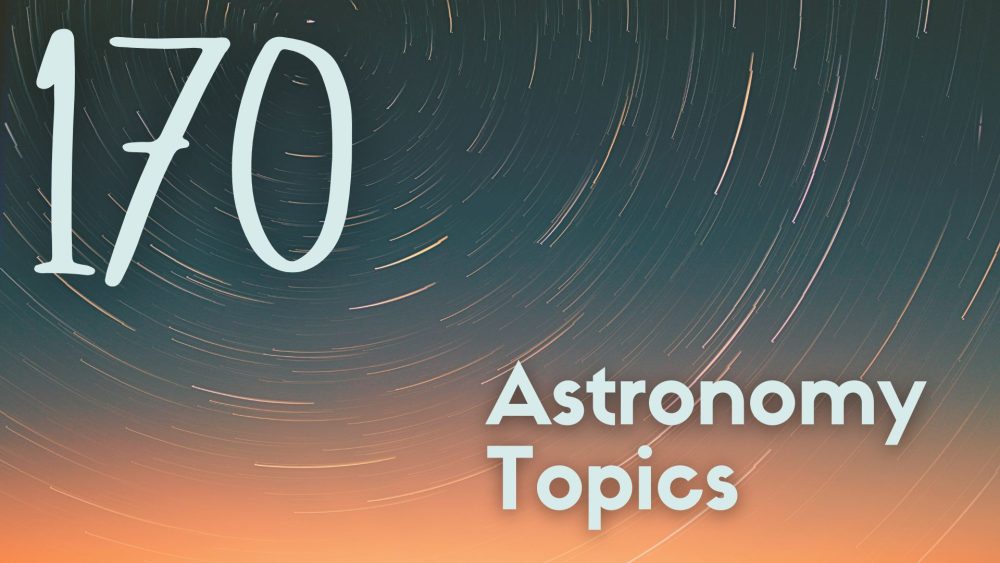
Astronomy, which is the study of celestial objects and phenomena, has indeed captured the imaginations of humanity since time immemorial. From unraveling the mysteries of distant galaxies to investigating the nature of dark matter, astronomy, interestingly, indeed encompasses a wide range of exciting research topics.
But before we look at a wide range of excellent astronomy-related research topics that college students, professors, teachers, and other professionals will find useful, let us take a small detour to what astronomy really is.
What Is Astronomy?
Astronomy is the scientific discipline that essentially focuses on the study of celestial objects such as stars, planets, galaxies, and other phenomena in the universe. In other words, astronomy is the observation, theoretical modeling, and interpretation of astronomical data for the purposes of deepening our understanding of the cosmos.
Characteristics Of A Good Astronomy Research Paper
Here are some characteristics of a good astronomy paper:
Originality : A good astronomy research paper should provide unique insights and be able to address unanswered questions.
Clarity : A good astronomy research paper should be able to simplify and communicate complex concepts effectively.
Scientific-rigor : A good astronomy research paper should be able to present a well-defined methodology and provide reliable data.
Relevance : A good astronomy research paper should be relevant. It should be able to explore emerging areas of study or address current astronomical issues.
Contribution : A good astronomy research paper should be able to advance existing knowledge and provide avenues for further research.
Astronomy Research Topics
Astronomy research topics, in a nutshell, encompass various research areas within astronomy. These research areas include but are not limited to: the study of gravitational waves, extraterrestrial intelligence, magnetic fields in celestial objects, stellar evolution, and high-energy astrophysics. Here are great astronomy research topics to consider for your school or university paper:
- Gravitational waves and their impact on Astronomy
- Stellar evolution and life cycle of stars
- The role of magnetic fields in shaping celestial objects
- The role of magnetic fields in star formation
- Origin and evolution of supermassive black holes
- Impact of Space weather on Earth’s atmosphere
- Investigating the nature of fast radio transients
- Evolution of galaxies in different environments
- Probing the intergalactic medium using quasar absorption lines
- Cosmic rays and their effects on astronaut health
- Detection and characterization of fast radio bursts
- Study of Exomoons: Moons orbiting exoplanets
- High energy astrophysics and cosmic rays
Astronomy Topics
These topics cover a wide range of astronomical subjects such as galaxies and their evolution, planetary atmospheres, the study of asteroids and comets, phenomena like gamma-ray bursts, and the formation of the solar system to mention a few. Students who need dissertation help will find the following topic suggestions interesting:
- The formation of the solar system
- Exploring the mysteries of gamma-ray bursts
- Planetary atmospheres and climate change
- The study of asteroids and comets
- Types, interactions, and evolutions of galaxies
- Stellar populations in different galactic environments
- Dynamics and formation of globular clusters
- The role of black holes in galaxy evolution
- Exploring the cosmic microwave background radiation
- Probing the origins of ultra-high energy cosmic rays
- The formation and evolution of planetary nebulae
- Investigating the origins of First Radio Bursts (FRBs)
- The interstellar medium and star formation
Space Research Paper Topics
These focus on topics related to space exploration and observations. Some high-quality interesting topics that native writers, students, and class teachers will find useful include:
- Space telescopes and their contribution to astronomy
- The study of space weather and its effects on earth
- Investigating the mysteries of black holes using space-based observatories
- Space missions to explore Mars and other planets
- The search for exoplanets and habitable environments
- Space debris: Assessment, mitigation, and future challenges
- Space tourism: potential market growth and safety regulations
- Space weather and its impacts on Earth’s technological systems
- Asteroid mining: Opportunities, challenges, and ethical considerations
- Interplanetary dust and its significance for planetary science
- Space colonization: Challenges and prospects for human settlement on other planets
- Lunar exploration and resource utilization for sustainable space missions
- Space telescopes: advancements in observational astronomy
Interesting Astronomy Topics
These topics delve into the intriguing aspects of astronomy. Here are interesting astronomy topics to consider:
- The concept of time in astronomy and relativity
- Exploring the origins of cosmic rays
- The possibility of life on other planets
- Pulsars: Nature’s most precise cosmic clocks
- Astrobiology: The study of life in the universe
- Studying the relationship between supermassive black holes and galaxy evolution
- Probing the origins and composition of interstellar dust
- Investigating the mystery of dark energy in the universe
- Unveiling the secrets of neutron stars and pulsars
- Investigating the role of magnetic fields in star formation and stellar evolution
- Examining the dynamics of composition of planetary atmospheres in our solar system and beyond
- Understanding the processes and consequences of stellar explosions (supernovae)
- Investigating the potential habitability of exoplanets and the search for life beyond earth
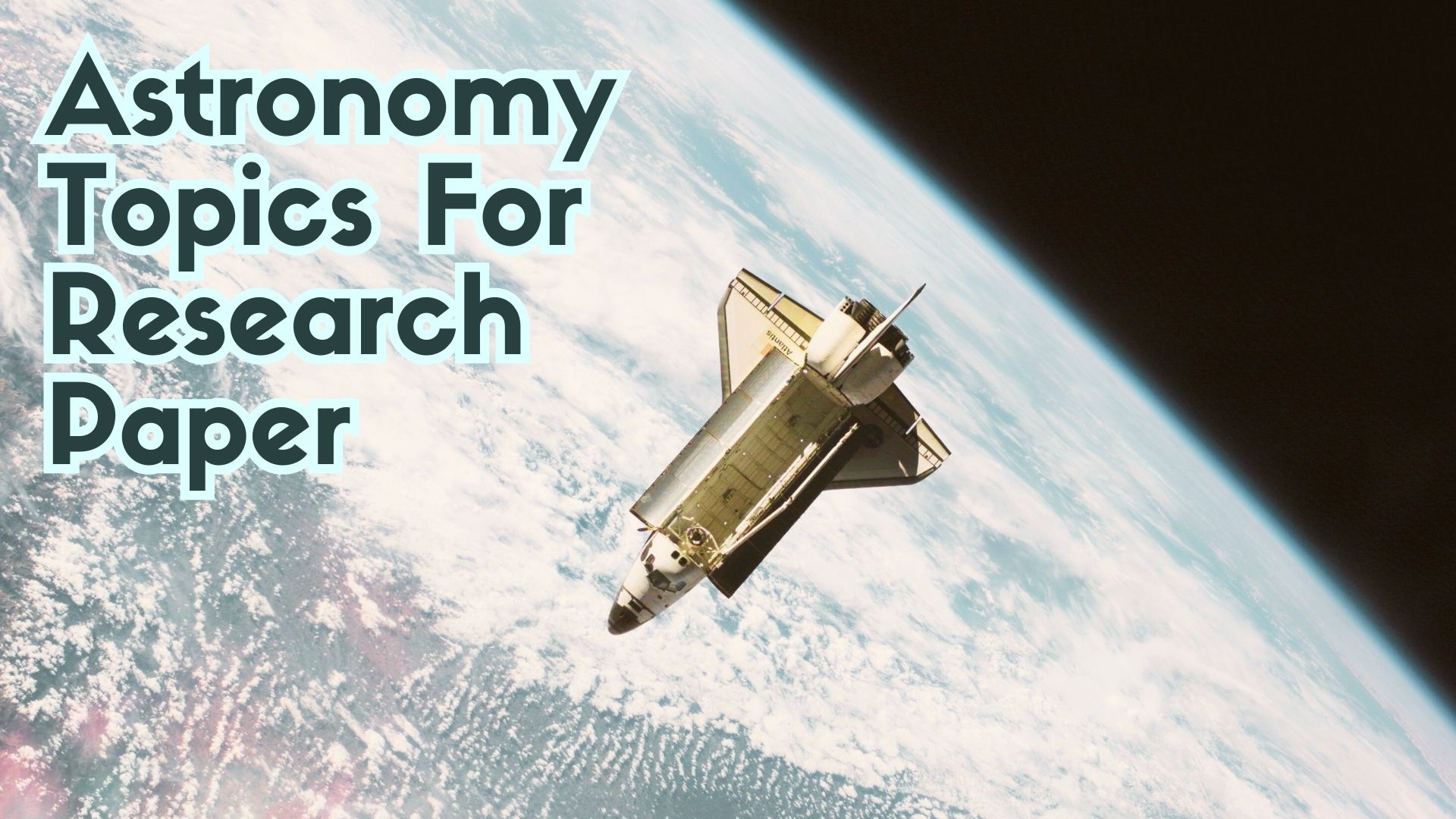
Astronomy Topics For Research Paper
This particular category suggests topics that are suitable for research papers in astronomy. Professionals, online writers, class teachers, college and university students, as well as professors will find the following topics excellent:
- The role of dark matter in galaxy formation
- Investigating the nature of dark energy
- Probing the mysteries of neutron
- Supernovae and their importance in the universe
- The discovery and characterization of exoplanets
- Stellar evolution and supernovae: Investigating the life cycles of stars, including their birth, evolution, and explosive deaths as supernovae
- The search for primordial black holes
- Stellar abundances: Tracing chemical evolution
- Interstellar medium: Composition, dynamics, and evolution
- Gravitational lensing: Probing the mass distribution of galaxy clusters
- Protoplanetary disks and planet formation
- Dwarf galaxies: formation and dark matter content
- Supernovae Remnants: probing stellar explosions
Space Science Topics
These topics encompass a broad range of scientific investigations related to space. Interesting topics include:
- Studying the dynamics of planetary atmospheres and weather patterns
- The exploration of moons in our solar system
- Exploring the nature of gravitational interactions in multiple star systems
- Investigating the nature of black hole mergers
- Investigating the origins of cosmic magnetic fields
- The role of space weather in satellite communications
- The study of planetary geology and surface features
- Studying the atmospheres of exoplanets using spectroscopy
- Probing the mysteries of white dwarfs and their evolutionary paths
- Exploring the possibilities of asteroid mining
- Understanding the formation of planetary rings
- The study of space debris and its impact on space exploration
- Investigating the physics of solar flares and coronal mass ejections
Astrophysics Research Topics
This particular topic focuses on research topics within astrophysics which entail the study of celestial objects and phenomena. The best topics to consider are:
- Understanding the physics of gamma-ray astronomy and its implications
- Probing the physics of stellar explosions: Supernovae and gamma-ray bursts
- Exploring the properties of interplanetary magnetic fields and solar wind
- The study of high-energy astrophysical phenomena: Ray binaries and pulsars
- Investigating the physics of stellar oscillations and asteroseismology
- Understanding the physics of accretion disks around black holes
- The study of interstellar turbulence and its impact on star formation
- Investigating the nature of dark energy through cosmic microwave background
- Understanding the dynamics of galactic collisions and mergers
- Exploring the mechanisms behind stellar magnetic fields and activity
- Probing the physics of gravitational waves and their sources
- The study of relativistic jets from active galactic nuclei
- Investigating the role of magnetic fields in star formation processes
Space Exploration Topics
These are topics that revolve around the exploration of space and entail:
- The future of human colonization of Mars and other celestial bodies
- Investigating the formation and evolution of planetary systems beyond our solar system
- Investigating the potential for life on moons of gas giants
- Exploring the potential for resource utilization on the moon and asteroids
- The study of space tourism and its challenges
- The study of space-based gravitational wave detectors
- Exploring the possibilities of interstellar travel and propulsion systems
- Understanding the challenges and prospects of manned deep space missions
- The role of robotic missions in planetary exploration
- Investigating the feasibility of asteroid deflection strategies
- Investigating the potential for terraforming other planets
- Exploring the mysteries of the outer heliosphere and heliopause
- The study of space-based telescopes and observatories
Research Topics In Cosmology
This particular category explores research topics within cosmology which is essentially the study of the origin of evolution and the structure of the universe. Some good topics to consider for scientific thesis writing include:
- Understanding the nature and properties of cosmic neutrinos
- The study of the cosmic microwave background radiation and its implications
- Exploring the physics of dark energy and its implications
- Understanding the large-scale structure of the universe
- Investigating the Role of baryonic acoustic oscillations in Cosmology
- Investigating the nature of primordial gravitational waves
- The study of the early universe and the era of recombination
- Exploring the possibilities of a multiverse
- Probing the nature of cosmic strings and other topological defects
- The study of cosmic voids and their impact on galaxy formation
- Investigating the physics of inflationary models
- Understanding the formation and evolution of cosmic filaments
- Probing the nature and properties of dark matter candidates
Astronomy Topics To Write About
If you are a student looking for the best astronomy topics to write about, here are excellent suggestions:
- The formation and evolution of galaxies
- The study of cosmic rays and high-energy particles
- The life cycle of stars: From birth to death
- Investigating the origins and evolution of the solar system
- The search for extraterrestrial intelligence (SETI)
- The Impact of Asteroids collisions on Earth’s History
- The Role of dark matter in the Universe
- Exploring the magnetic fields of celestial objects
- Exoplanet discoveries and characterization
- The structure and dynamics of spiral galaxies
- The nature of black holes: Mysteries and discoveries
- The detection and study of gravitational waves
- The Origins of the Universe: big bang cosmology
Cool Astronomy Topics
- Time dilation: The effects of relativity on observations
- Stellar Archeology: Unraveling the Secrets of old stars
- Stellar Nurseries: birthplaces of new stars
- The evolution of galaxies in galaxy clusters
- Exoplanet atmosphere: Clues for habitable worlds
- Strange Planets: Exotic discoveries beyond our solar system
- The Origins of Fast Radio Bursts (FRBs)
- The potential existence of a parallel universe
- The Kuiper Belt: Exploring the Icy Worlds Beyond Neptune
- Exploring supermassive black holes at the centers of galaxies
- Quasars: cosmic powerhouses and lighthouses
- The surprising behaviors of pulsars and magnetars
- The great attractor: Unveiling the Mysteries of cosmic flows
Interesting Space Topics
- Space debris: challenges and solutions for orbital cleanup
- Space mining: opportunities and ethical considerations
- Space-based telescopes: Expanding our view of the universe
- Space tourism: commercial ventures beyond Earth’s atmosphere
- Space weather: impacts on satellite communications and Earth’s environment
- The James Webb space telescope: A new era of observing the cosmos
- The search for water on Mars and its implication for life
- Mars colonization: challenges and benefits of establishing a human presence
- The lunar gateway: NASA’s Gateway to deep space exploration
- Astrobiology: Investigating the potential for life in extreme environments
- Space elevators: novel concepts for space transportation
- The Fermi Paradox: why haven’t we found extraterrestrial life yet?
- Planetary protection: safeguarding terrestrial bodies from contamination
Topics In Astronomy
- Stellar evolution: from protostars to supernovae
- The role of spiral density waves in shaping galaxies’ structures
- Galactic dynamics: The structure and evolution of galaxies
- The study of globular clusters: ancient stellar systems
- Observational techniques in astronomy: from telescopes to space missions
- White dwarfs and planetary nebulae: The final stages of stellar evolution
- Cosmic microwave background radiation: clues to the early universe
- Gamma-ray bursts: The most energetic explosions in the universe
- The Hertzsprung-Russell diagram: understanding stellar properties
- The Drake equation: estimating the number of technologically advanced civilizations
- The Doppler effect: Measuring the motion of celestial objects
- The role of interstellar dust in the absorption and scattering of light
- Variable stars: exploring the changing brightness of astronomical objects
- Astrochemistry: Understanding the chemistry of space
In conclusion, astronomy offers a vast realm of research possibilities ranging from the mysteries of dark matter and dark holes to the explorations of exoplanets. We understand that the field of astronomy can be a complex area to write a research paper on as a student. If you experience difficulties and look for someone to write a thesis for you , we do custom astronomy research papers, editing, and deliver them within no time. Whether you want a research paper or need thesis help, we have professional writers at your beck and call. We are cheap, fast, and trustworthy, and deliver high-quality and well-written research papers at a moment’s notice.
Make sure to check our posts with other topics before you leave:
- 163 Unique Artificial Intelligence Topics For Your Dissertation
- 121 Original Neuroscience Research Topics
- 211 Of The Most Interesting Earth Science Topics
- 214 Best Big Data Research Topics For Your Thesis
- 211 Interesting Engineering Research Paper Topics
- Experiment vs Observational Study: A Deeper Look
- 101 Best Computer Science Topics
What is the Big Bang Theory?
The big bang theory suggests that the universe originated from an extremely hot and dense state around 13.8 billion years ago. It goes further to explain the expansion and evolution of the cosmos including the formation of the stars, the galaxies, and the planets.
What is a black hole?
A black hole refers to a region in space with an intense gravitational pull that prevents anything, including light, from escaping. A black hole is formed when massive stars collapse under their own gravity forming a singularity surrounded by an event horizon.
What are exoplanets?
Exoplanets refer to planets that exist outside our solar system, orbiting stars other than the sun. The discovery of exoplanets has totally changed our understanding of the planetary system and the potential for habitable worlds beyond the Earth.
What is a dark matter?
Dark matter refers to a hypothetical form of matter that doesn’t interact with light or other electromagnetic radiation. It is generally inferred from its gravitational effects on visible matter and plays an instrumental role in explaining the dynamics of galaxies and the large-scale structure of the universe.

Leave a Reply Cancel reply
Your email address will not be published. Required fields are marked *
Comment * Error message
Name * Error message
Email * Error message
Save my name, email, and website in this browser for the next time I comment.
As Putin continues killing civilians, bombing kindergartens, and threatening WWIII, Ukraine fights for the world's peaceful future.
Ukraine Live Updates

IMAGES
VIDEO
COMMENTS
Crafting space research papers can be a thrilling and fulfilling pursuit, yet it demands meticulous planning and implementation to guarantee that your efforts effectively convey your discoveries and make meaningful contributions to the discipline. Here are some tips to help you write space research papers: Choose a Narrow Topic: Space is a vast ...
Research topics about space are relatively easy to find considering the broad research areas, which include: Earth observations, Geodesy, Atmospheric Sciences, Space physics, Planetology, Astronomy, Materials sciences, Life sciences, and Physics. Space research paper topics must stimulate and birth inquiry and answer compelling questions.
Type at least 3 characters. Reach for the stars: Research Topics on space exploration. With recent advances in commercial space exploration, we have curated a list of our best Research Topics on outer space. Explore collections edited by experts from NASA, The Goddard Space Flight Center, Space Science Institute, German Aerospace Center ...
Research Topics List. JPL's charter is to conduct robotic space missions for NASA, to explore our own and neighboring planetary systems, understand the origin and evolution of the universe and make critical measurements to understand our home planet and help protect it. We do this by developing integrated capabilities in engineering, science ...
Great Space Exploration Topics. A review of three biggest planets that orbit outside the solar system. Comparing the characteristics of gas planets to terrestrial planets. Fission Hypothesis by George Darwin. A review of the Giant Impact Theory. Exploring the theories that explain the origin of the moon.
HERMES (Heliophysics Environmental and Radiation Measurement Experiment Suite) Herschel Space Observatory. HETE-1 (High Energy Transient Explorer 1) HETE-2 (High Energy Transient Explorer 2) High-Tech Computing. Hinode (Solar B) Hipparcos. Hi-Rate Composite Aircraft Manufacturing. Hispanic Heritage Month.
Our article explores ten key astronomy research topics, each offering a gateway to understanding the complex phenomena that govern the stars, planets, and galaxies, inviting readers to dive deep into the wonders of space. Gain insights into the complex forces shaping the cosmos, from the smallest particles to the largest structures.
The Main Reasons for Space Exploration. In 1957, the Soviet successfully launched the first satellite into space that marked the beginning of space exploration. After the success of the Soviet’s satellite, the U.S.invested more into space exploration. A Trip to Mars: Approximate Time, Attaining Synchrony & Parking Orbit.
Astronomy research topics hold a significant place in the academic curriculum due to their profound impact on our understanding of the universe and our place within it. These topics encourage students to explore the vastness of space, the intricacies of celestial bodies, and the astronomical objects and events that shape our cosmos.
Here are great astronomy research topics to consider for your school or university paper: Gravitational waves and their impact on Astronomy. Stellar evolution and life cycle of stars. The role of magnetic fields in shaping celestial objects. The role of magnetic fields in star formation. Origin and evolution of supermassive black holes.